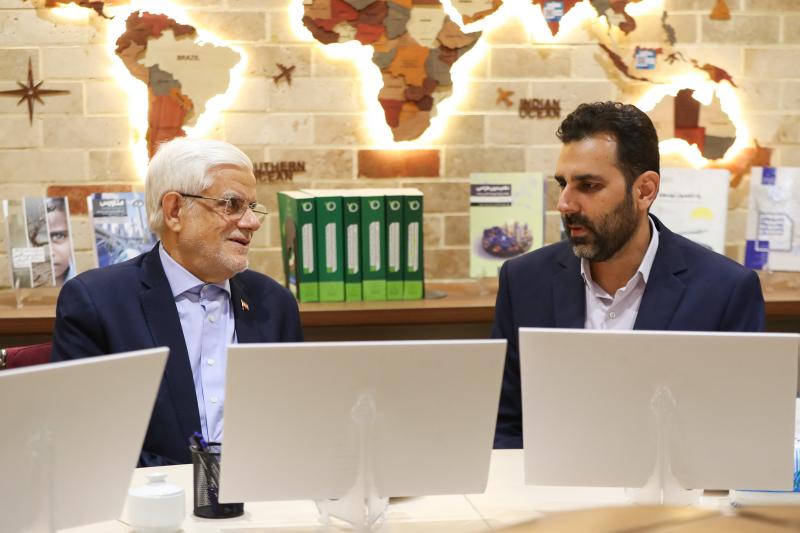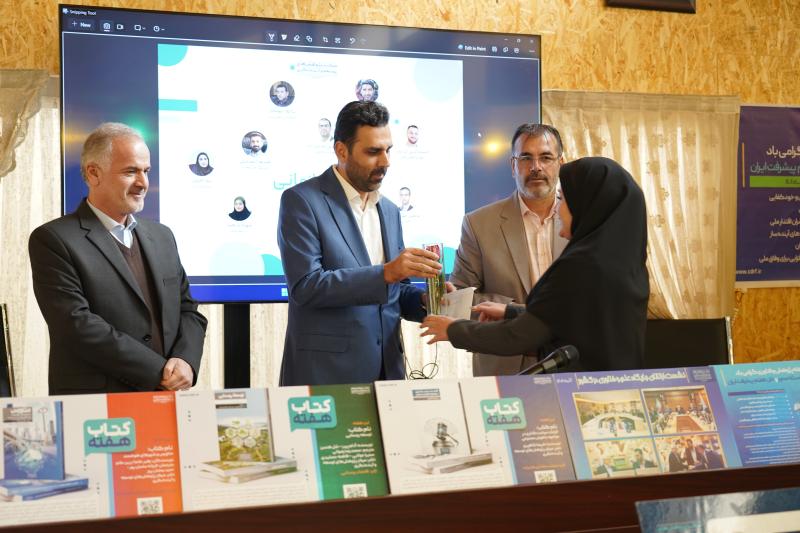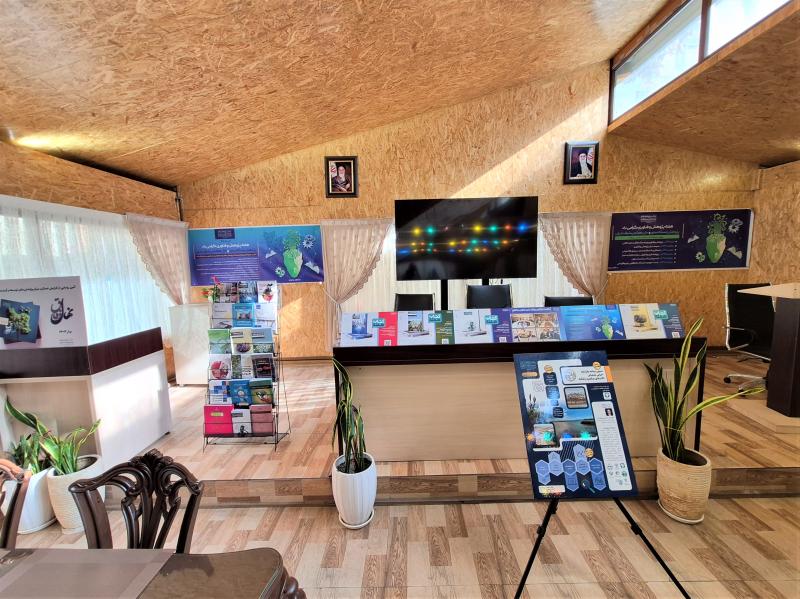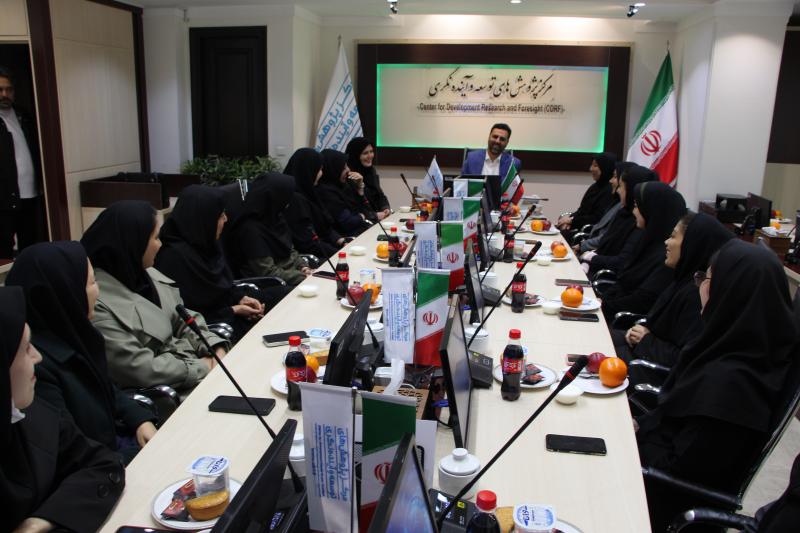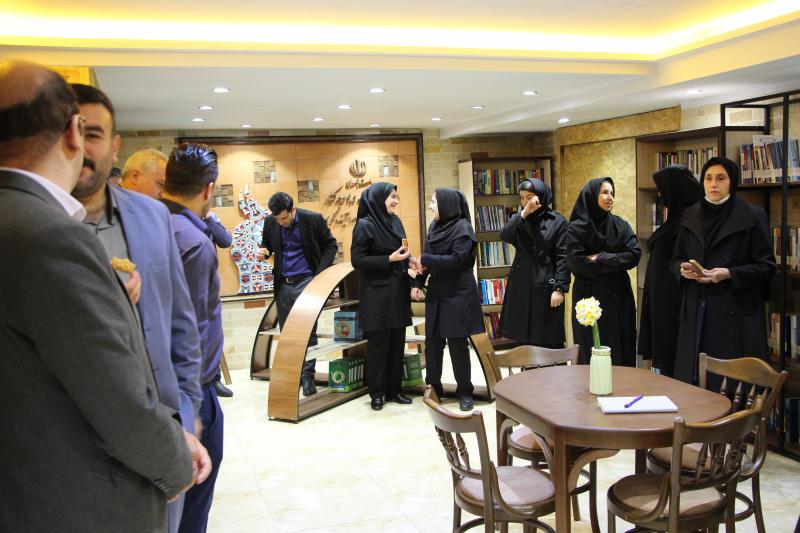
-
بررسی آییننامهها و دستورالعملهای برنامه هفتم پیشرفت
-
بررسی عوامل موثر بر افزایش تصادفات و تلفات جادهای و سوانح رانندگی و دادهکاوی تلفات انسانی
-
سازماندهی و بازآرایی فضایی آموزش عالی کشور
-
به روز رسانی سند ملی آمایش سرزمین
-
انجام مطالعات مناطق آزاد به عنوان نواحی پیشران اقتصادی کشور
-
اصلاح ساختار بودجه و پیاده سازی نظام یکپارچه مدیریت اطلاعات مالی دولت (IFMIS)
کلید واژه : policy
تعداد اخبار : 85
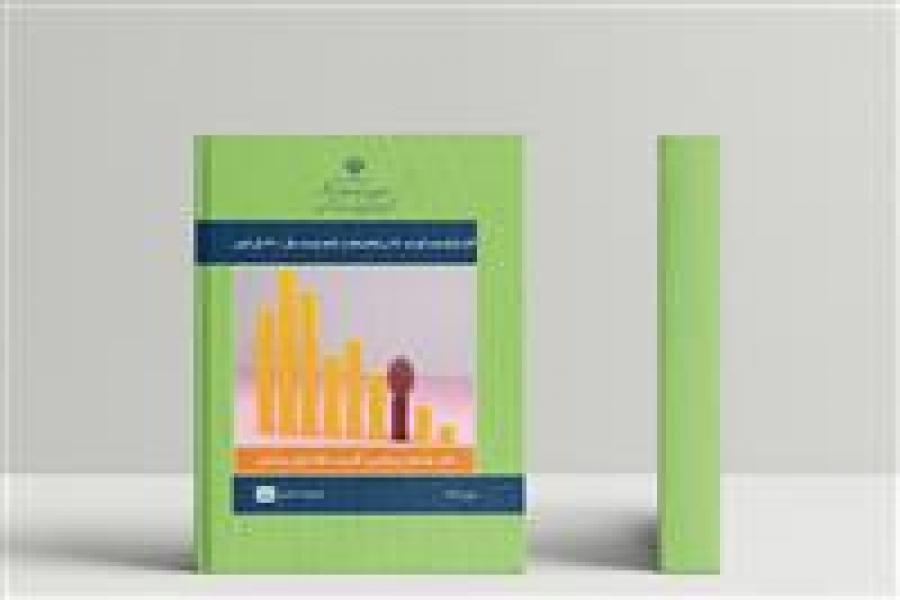
گزارش سیاستی با عنوان آثار کوتاه مدت کووید-۱۹ بر فعالیت ها در لایحه بودجه سال ۱۴۰۰ کل کشور منتشر شد
سومین گزارش سیاستی مرکز پژوهش های توسعه و آینده نگری با عنوان «آثار کوتاه مدت کووید ۱۹ بر فعالیت ها در لایحه بودجه سال ۱۴۰۰ کل کشور» منتشر شد 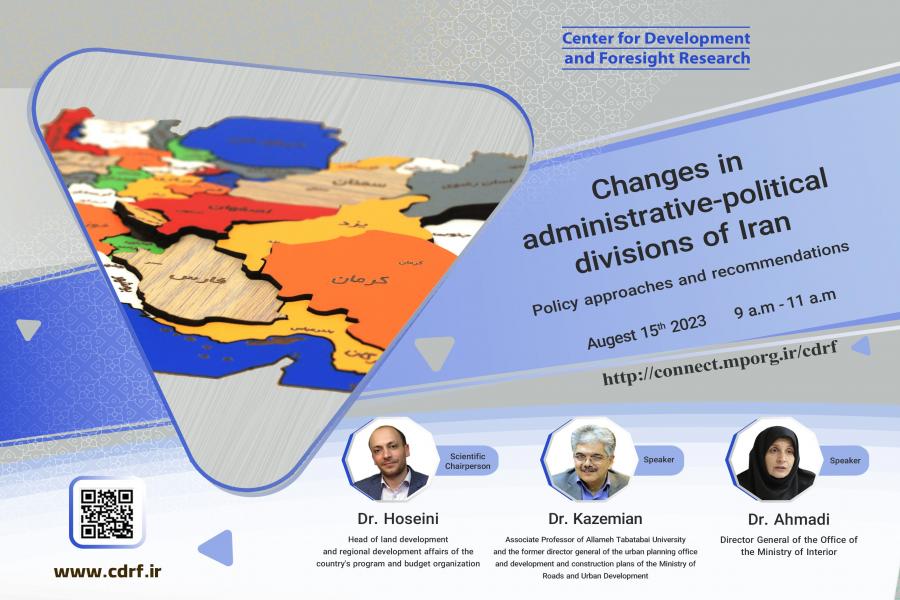
National Land Use Plan: The Key to Balanced Development and Budget Resource Allocation
The scientific-specialized conforence of "Transformations in the Administrative-Political Divisions of Iran: Approaches and Policy Recommendations" was held. 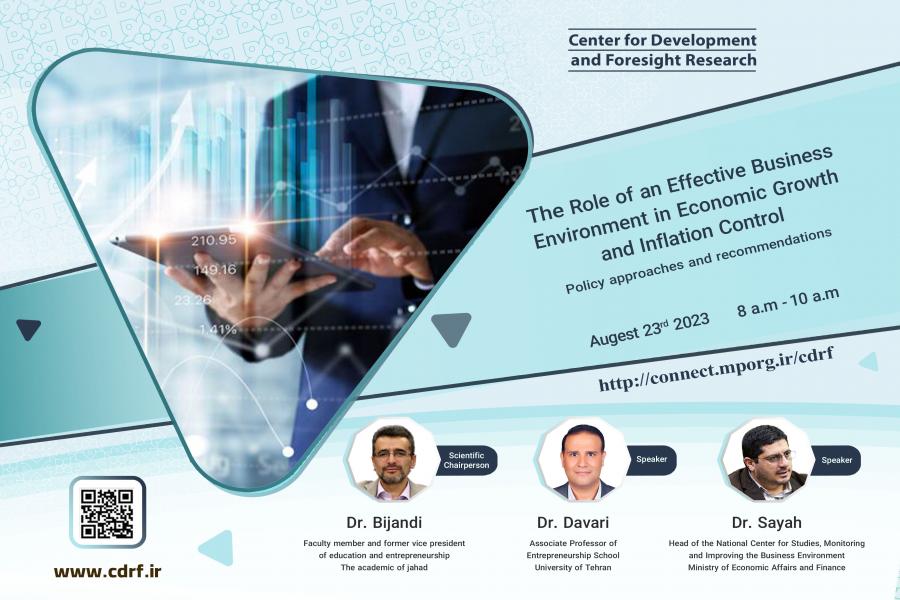
The Role of an Effective Business Environment in Economic Growth and Inflation Control: Approaches and Policy Recommendations
The specialized conference titled “The Role of an Effective Business Environment in Economic Growth and Inflation Control: Approaches and Policy Recommendations” was recently held. The conference was attended by several notable figures, including Dr. Mohammad Sadegh Bijandi, a former member of the academic board and deputy of education and entrepreneurship of the Academic Center for Education, Culture, and Research, who served as the scientific director. Other attendees included Dr. Ali Davari, an associate professor of entrepreneurship at the University of Tehran, and Dr. Amir Sayyah, the head of the National Center for Business Environment Studies, Monitoring, and Improvement of the Ministry of Economic Affairs and Finance, who both served as scientific speakers. The conference aimed to discuss approaches and policy recommendations for creating an effective business environment to promote economic growth and control inflation..jpg)
Mass housing is the public demand from the government.
The scientific-specialized meeting entitled "Strategies for addressing the Housing Supply Crisis" was held with the presence of Mr. Rouhollah Akbari, Special Assistant to the Minister and Secretary of the Committee of Housing of the Ministry of Roads and Urban Development, as the scientific director, Dr. Mohammad Hossein Sharifzadegan, Professor at Shahid Beheshti University and former Minister of Welfare and Social Security, and Dr. Abolfazl Norouzi, Advisor to the Minister and Director General of the Housing Economy Office of the Ministry of Roads and Urban Development, as speakers..jpg)
Public-Private Partnerships in Land Development: Key Figures Discuss Pressing Issues
In the specialized conference titled "The Model of Public-Private Partnership in Land Development", it is stated that Public-Private Partnerships (PPPs) are essential for meeting the world's infrastructure needs, but face challenges such as financing, maintenance, and planning. Governments play a crucial role in PPPs by fostering a collaborative environment, building capacity, and providing transparent policy-making and necessary financial resources. In Iran, PPPs are still in their early stages, and the government needs to address challenges such as lack of interest from executive agencies and absence of a comprehensive approach.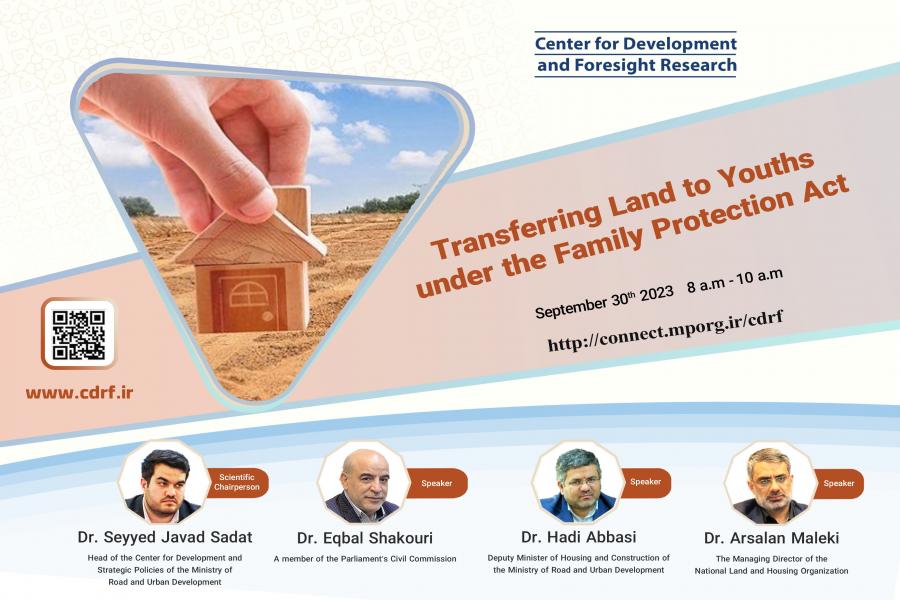
Transferring lands to youths under the Family Protection Act is a positive step in the right direction.
The conference of "Transferring Lands to Youths under the Family Protection Act: Challenges and Policy Recommendations" was held by the participation of notable figures. It is stated that the government is committed to supporting the family and youth population, and the land transfer program is a positive step in the right direction. Also, it is pointed out that it is important to ensure that the program is implemented effectively and efficiently, and that all eligible households are able to benefit from it.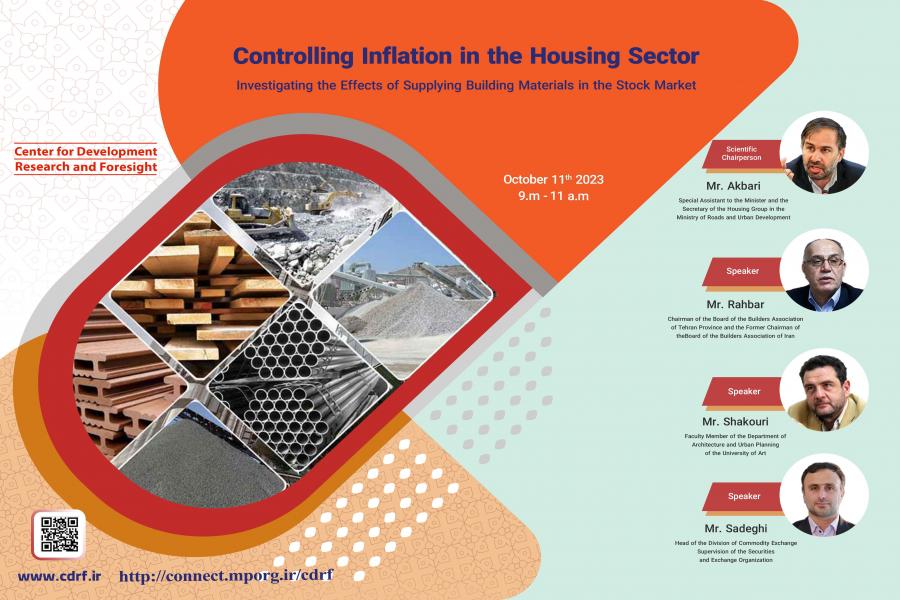
Supplying Building Materials in the Stock Market is a Matter with Controversial Perspectives.
The Center for Development and Foresight Research recently organized a specialized conference focused on addressing inflation in the housing sector, specifically examining the effects of supplying building materials in the stock market. The conference was led by Mr. Rouhollah Akbari, a special assistant to the Minister and the secretary of the housing group in the Ministry of Roads and Urban Development. Various experts from academia and industry presented their perspectives so that a comprehensive outlook can be provided to all interested in this topic.
China's Technological Leapfrogging and Economic Catch-up
In his book, "China's Technological Leapfrogging & Economic Catch-Up- A Schumpeterian Perspective", Professor Keun Lee examines China's economic growth from a Schumpeterian perspective. He argues that China's success in catching up to the developed economies has been due in part to its ability to leapfrog over older technologies and adopt new technologies more quickly.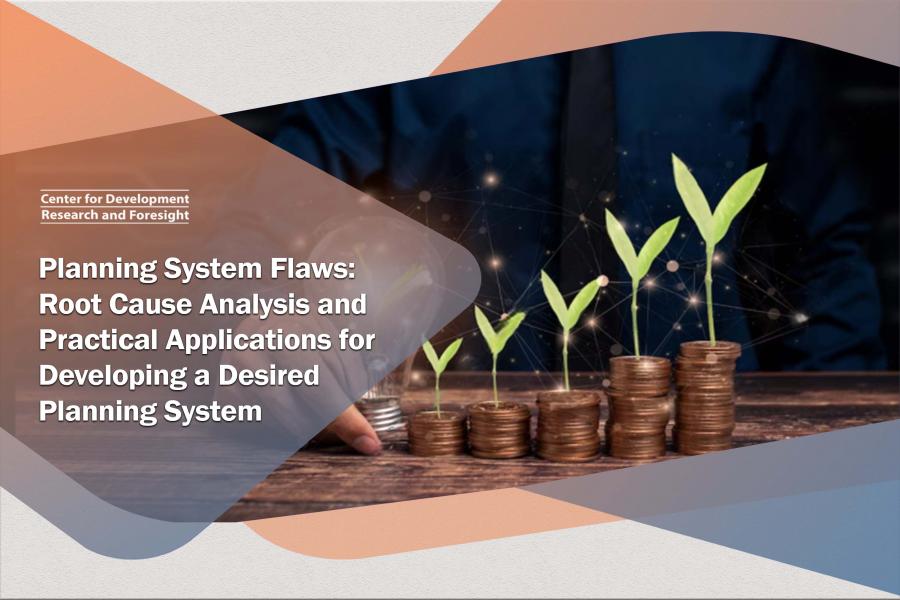
Planning System Flaws: Root Cause Analysis and Practical Application for Developing a Desired Planning System
The objective of this report is to comprehensively analyze and identify the underlying causes of deficiencies within the planning system of the country. The report examines the development programs implemented over the past 45 years, assesses the legal framework, and evaluates the objectives and performance of the planning system.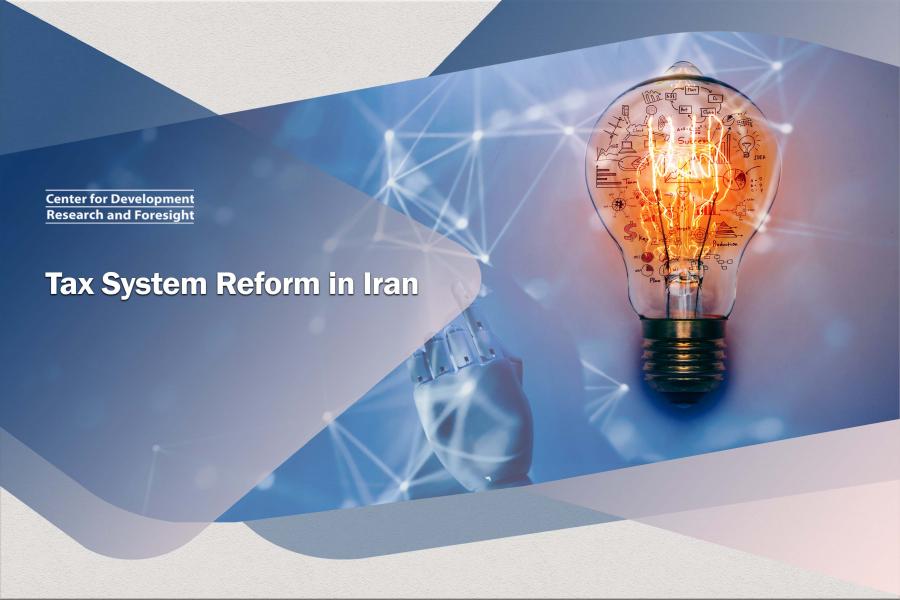
Tax System Reform in Iran
One of the most formidable challenges encountered by taxpayers within the Value Added Tax (VAT) system is the delay in VAT refunds. This delay disrupts the tax credit mechanism, transforming the consumption tax into a production or export tax.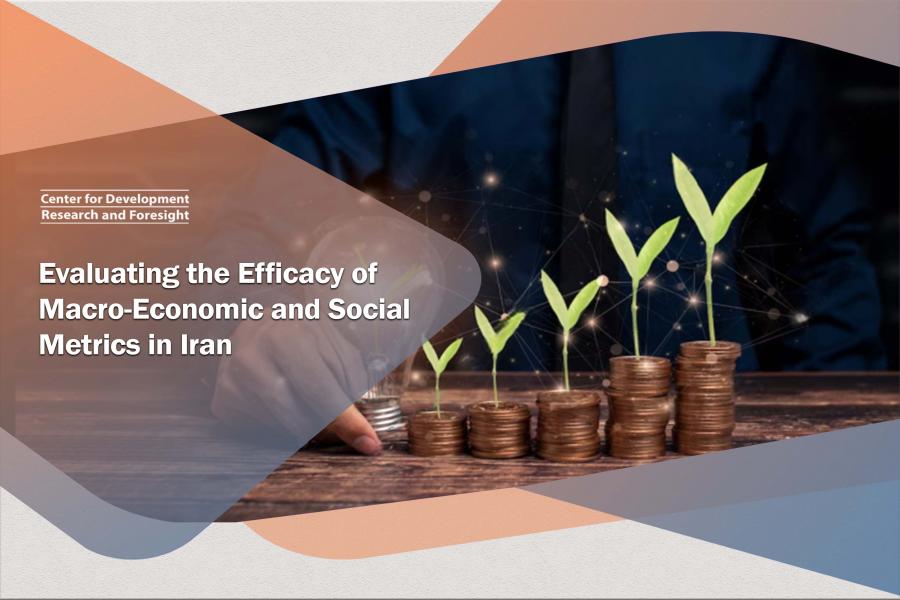
Evaluating the Efficacy of Macro-Economic and Social Metrics in Iran
The purpose of this report is to identify the root cause of the flaws in the planning system in the country. The report takes a general look at development programs in the last 45 years, assay the structure of laws, and examines the goals and performance of the planning system.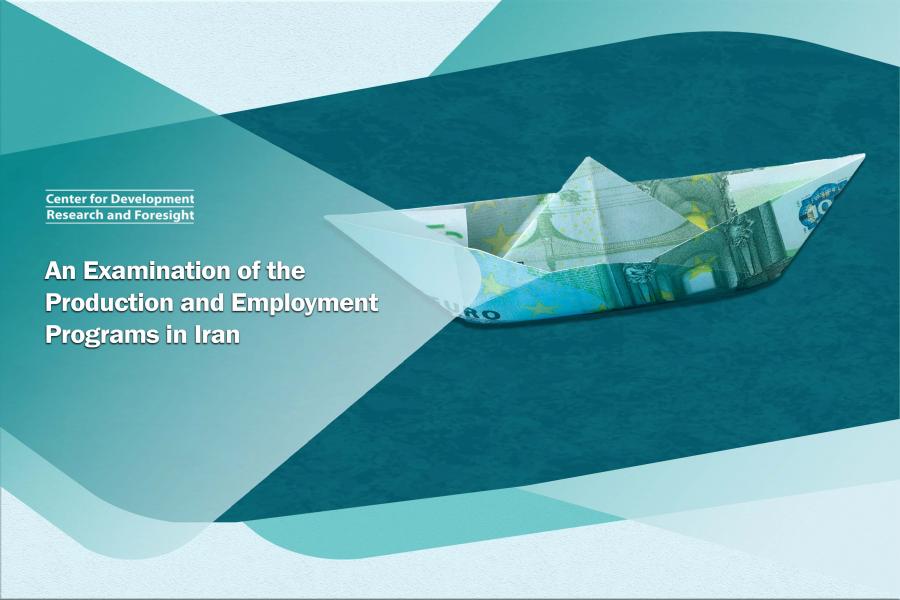
An Examination of the Production and Employment Programs in Iran
Commencing in 2016, the Iranian annual budget legislation has consistently highlighted employment support, production and employment, as articulated in Article 18. A comprehensive examination has been undertaken on the way that Article 18 has been performed within this specified duration. The examination disclosed the existence of certain deficiencies in planning.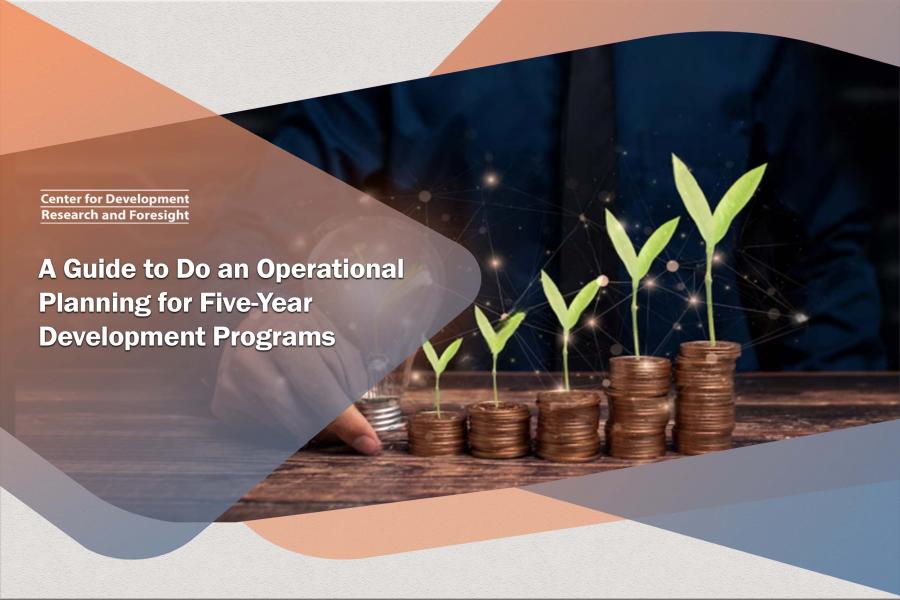
A Guide to Do an Operational Planning for Five-Year Development Programs
An action plan is a projection of actions that are needed to achieve specific goals based on the possibilities, limitations, and outlines established in strategic planning. This study aims to provide a model for developing the action plan of the country's five-year development plan to address frequent criticism in the country's development planning system.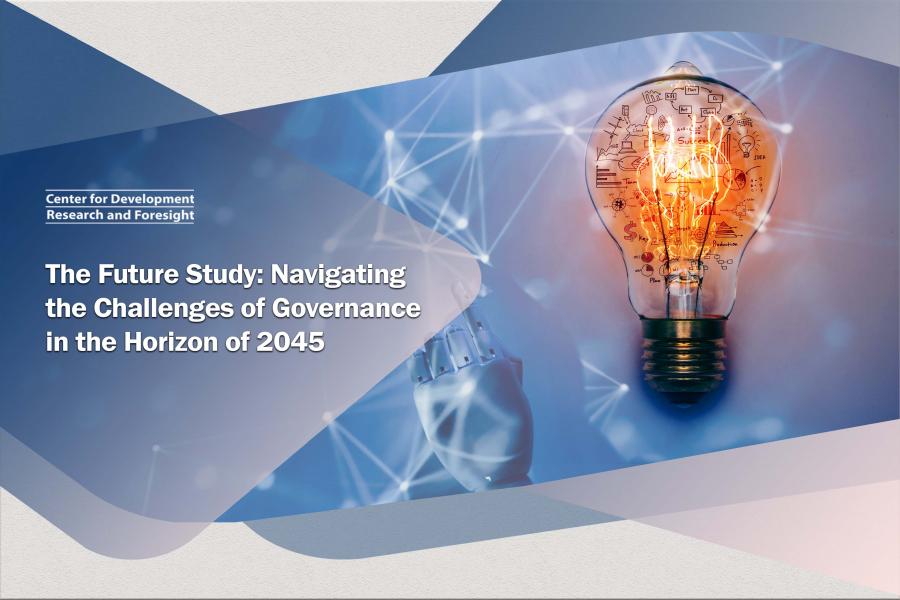
The Future Study: Navigating the Challenges of Governance in the Horizon of 2045
Spatial Planning has been characterized as a means of reclaiming land and asserting sovereignty, essentially establishing it as a category of governance and policy-making. As such, it represents a continuous evolution of governance approaches. The Spatial Planning document draws upon inputs from the political realm and public policies, culminating in a national document that serves as a public policy notification. Given that governance is the primary institution established by a society to overcome existing challenges and achieve desired outcomes, the government's utilization of the national spatial planning document fulfills a distinctly governance-oriented function. This functional affinity necessitates careful consideration of governance processes when selecting tools, including the national spatial planning document, for long-term use.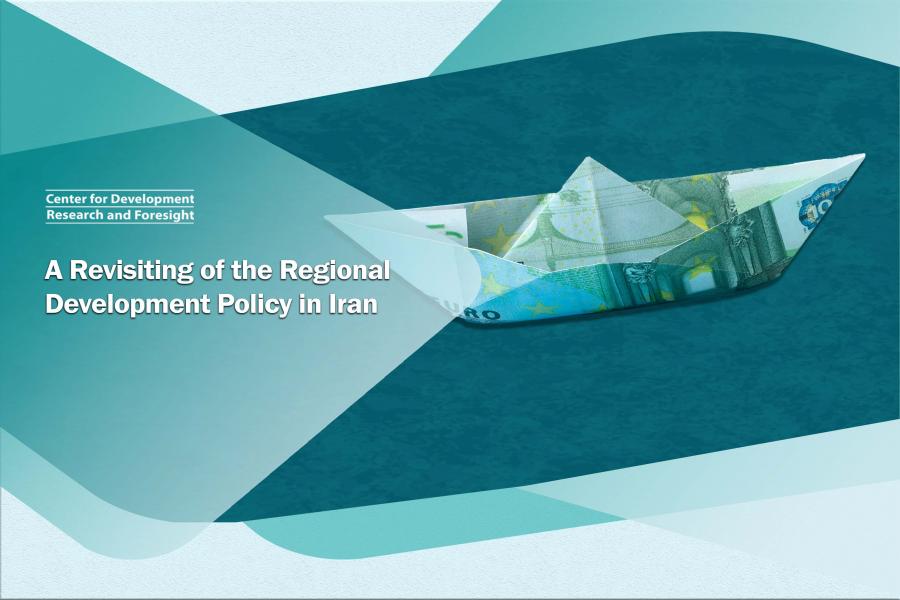
A Revisiting of the Regional Development Policy in Iran
This report elucidates the paradigm shifts pertaining to regional development policies in Iran. These policies have been predicated on two diametrically opposed economic growth strategies: the growth pole strategy, which centralizes investments in central regions, and distribution and redistribution policies, which are fundamentally anchored in principles of social justice.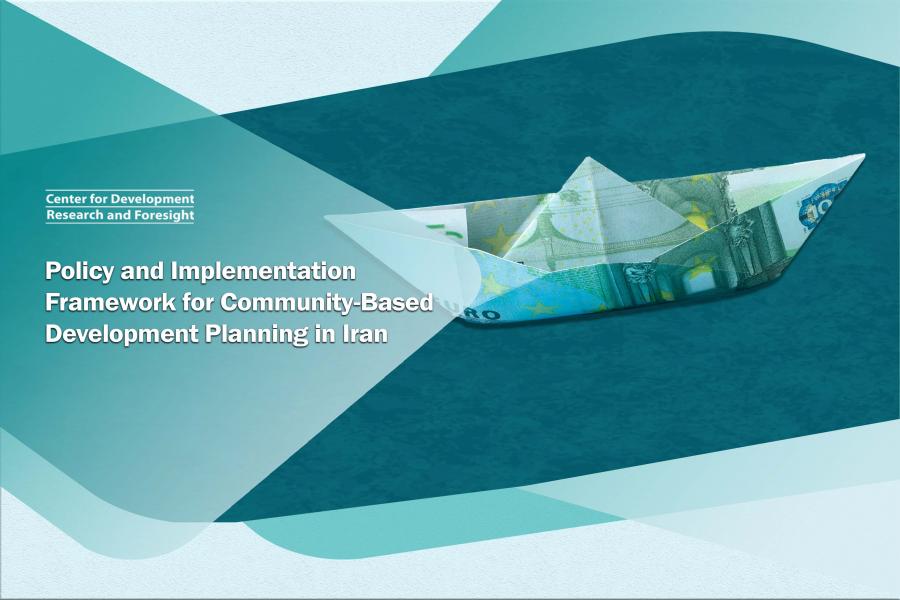
Policy and Implementation Framework for Community-Based Development Planning in Iran
This report delineates a comprehensive policy and implementation framework, specifically designed to address the institutional and functional gaps within the structure and processes of regional development programs in Iran. The primary objective is to transcend the confines of pilot projects and centralized approaches, with a concentrated focus on empowering target communities and key beneficiaries of regional development. The overarching goal is to facilitate decentralization, mitigate regional disparities, localize national development initiatives, and stimulate dynamic grassroots participation.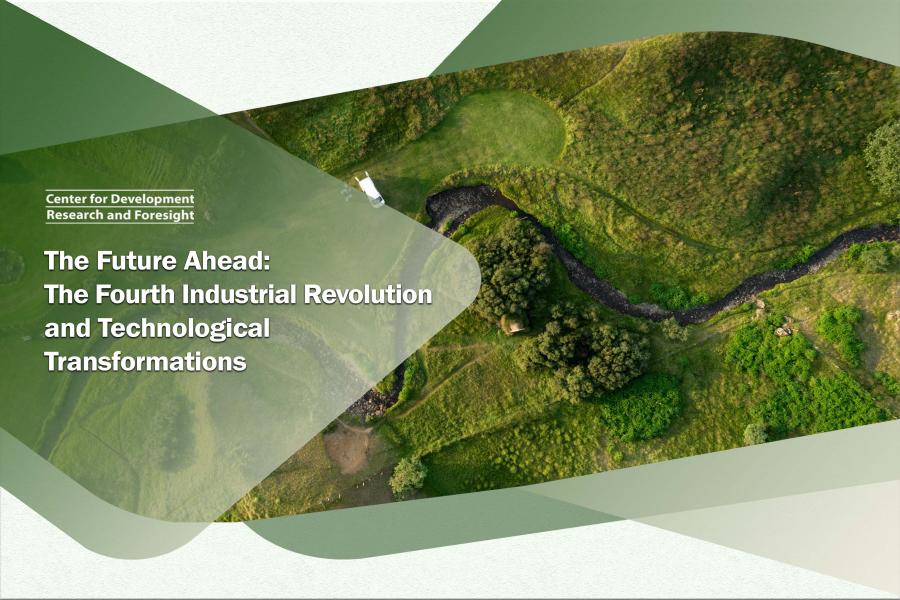
The Future Ahead: The Fourth Industrial Revolution and Technological Transformations
The main objective of this research is to examine and analyze the overall strategic direction of technological developments and to provide an overview of the Fourth Industrial Revolution and the effects of technological developments in selected areas.
Evaluating the Taxable Potential of Rental Income from Residential Properties and Vacant Homes in 2022
The imposition of a tax on vacant residential units is believed to influence behavior and align the vacancy rate with its natural level. From this perspective, the total tax capacity of vacant residential units is estimated at 12 thousand billion tomans, with 40% attributed to Tehran province. Given the current state of the housing market, it is deemed necessary for the government to intervene through the implementation of a tax law targeting vacant housing units. This serves as a regulatory mechanism to manage the housing market, control speculation, and reduce the profitability of unproductive activities in the housing sector.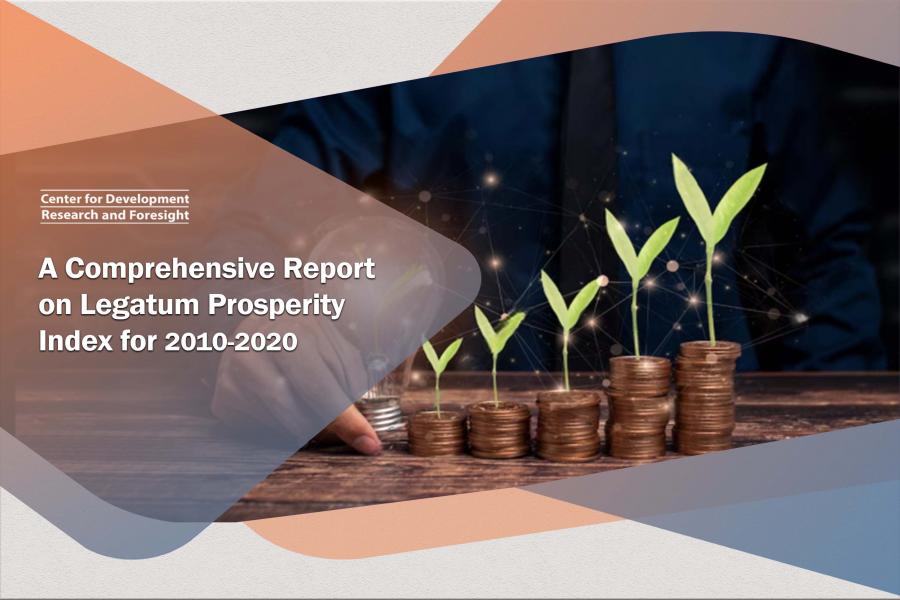
A comprehensive report on Legatum Prosperity Index for 2010-2020
The Legatum Prosperity Index, as a hybrid index, quantifies the fundamental pillars that underpin societal progress and prosperity. Its expressive nature makes it an effective tool for illustrating and comparing prosperity across different countries and regions. This is largely due to its coherent descriptive framework that amalgamates various socio-political and economic factors.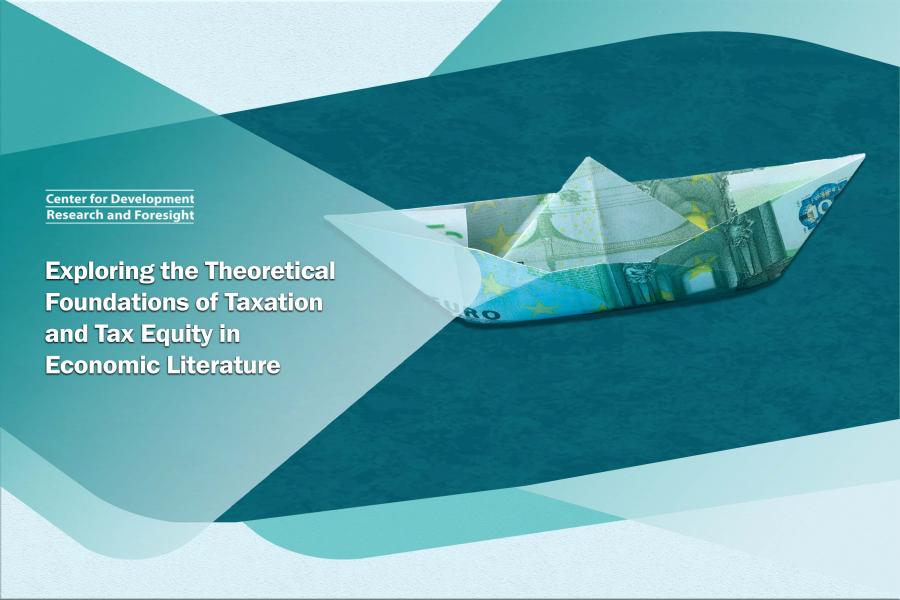
Exploring the Theoretical Foundations of Taxation and Tax Equity in Economic Literature
This report provides an in-depth exploration of the concepts of taxation and tax equity within the context of economic literature, illuminating the pivotal role of value judgments and assumptions in shaping tax policy and fairness. It underscores the notion that tax equity is predicated on specific assumptions such as the diminishing marginal utility of income and a universal utility function for all taxpayers. Acceptance of these assumptions lays the groundwork for advocating a fair tax system, whether proportional or progressive.
Examining the General Policies of Development Plans After the Islamic Republic of Iran’s Revolution
The systematic examination of the progression of policy content types within developmental plans indicates that policymakers in the field of development have consistently allocated half of their policy guidelines to public policies. This suggests an ongoing effort to address and resolve executive issues and problems within these developmental plans. Furthermore, the temporal increase in the proportion of guiding policies, coupled with a simultaneous decrease in comprehensive policies, demonstrates that when policymakers articulate values, they do so within the framework of policy guidelines or recommendations, alongside executive concepts. The findings reveal that the least favorable status in terms of content pertains to the policy guidelines of the second developmental plan, while the most favorable status is associated with the policy guidelines of the sixth plan.
Promoting Smart Growth: A Strategic Approach to Nurturing Innovation and Entrepreneurship in Iran
Economic growth is a fundamental driver of national prosperity, leading to improvements in per capita income, living standards, and national strength. Iran's development plans, such as the twenty-year vision and the sixth development plan, underscore the importance of achieving high and sustainable economic growth. To realize this goal, it is essential to carefully evaluate the factors influencing economic growth and formulate appropriate policies to address them.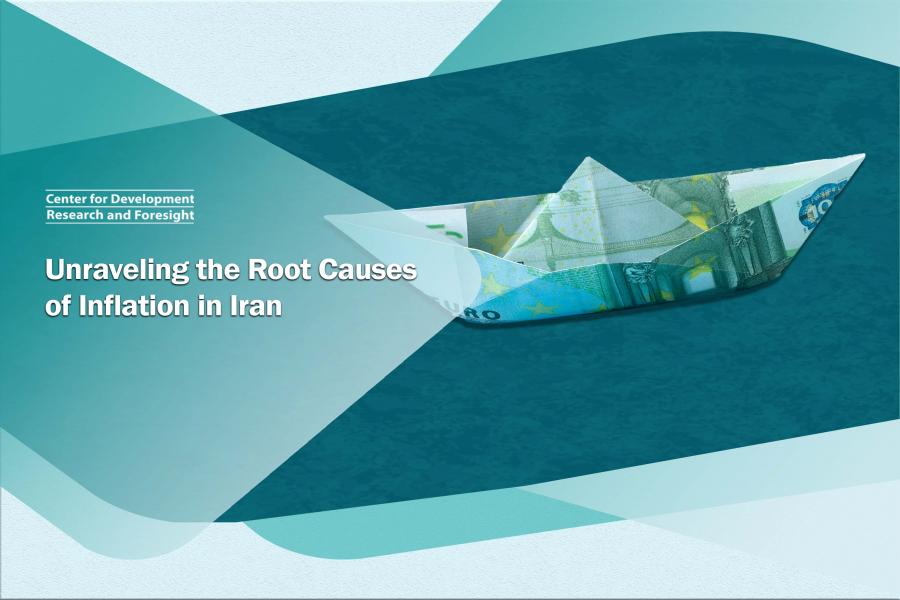
Unraveling the Root Causes of Inflation in Iran
High and persistent inflation poses a significant challenge to Iran's economy, with an annual average inflation rate of 20% impacting the socio-economic well-being of households. While there are diverse viewpoints on the root causes of this enduring inflation, a majority of economists argue that the dynamics of inflation in Iran should be considered since it has effects on the volume of liquidity and its components.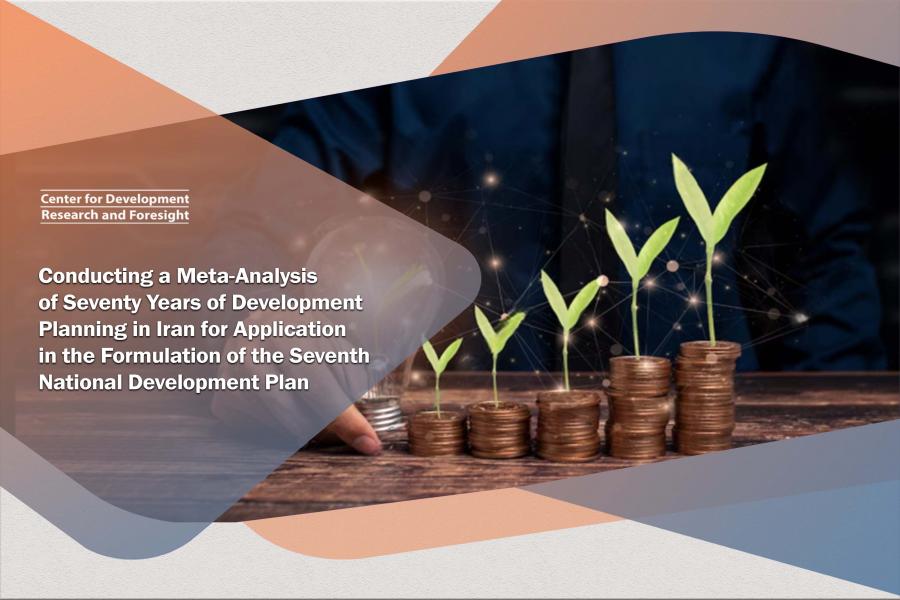
Conducting a Meta-Analysis of Seventy Years of Development Planning in Iran for Application in the Formulation of the Seventh National Development Plan
The development plan in Iran has been shaped by the evolution of the plan itself, following an established planning procedure. A crucial factor for successful planning is the establishment of a shared understanding and consensus on regulations, which serve as a blueprint for the content and structure of the plan among policymakers and planners. Given the importance of this issue, and recognizing that the formulation of regulations will be a pivotal step in advancing the seventh development plan, this study aims to delineate and clarify the regulatory elements of this plan.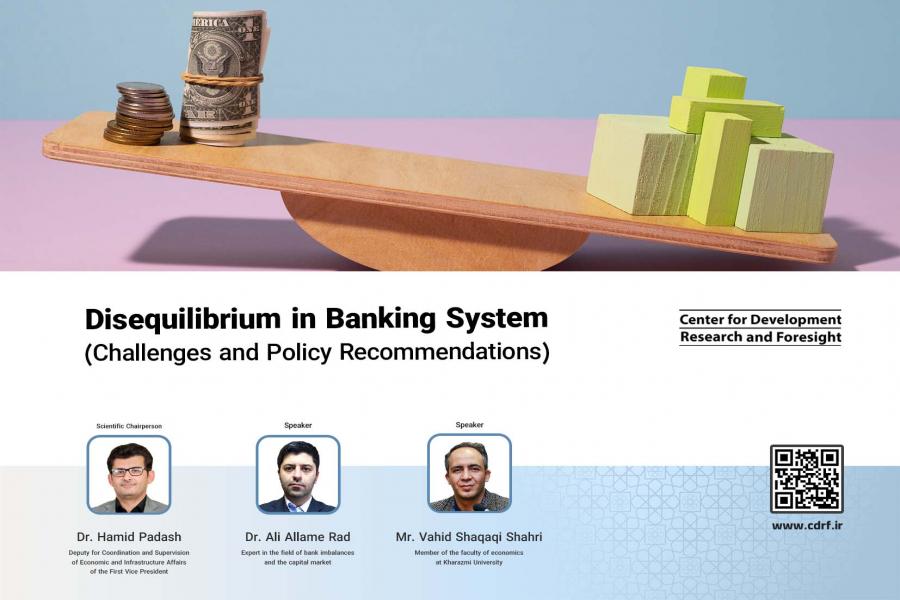
Disequilibrium in Banking System: Challenges and Policy Recommendations
The banking sector's disequilibrium has emerged as a pervasive and enduring challenge within the nation's macroeconomic framework. A series of strategic missteps have plagued the banking sector over the preceding four decades, including: the absence of unified Central Bank oversight from the late 1960s until 1994, despite formal recognition (substantive supervision remained deficient), the premature privatization of the banking industry without adequate national economic preparation, the imposition of government expenditures on private and non-governmental banks, particularly to offset a portion of the budget deficit, the perpetuation of a traditional view of money as a private commodity (a primary factor exacerbating domestic inflation), and vacillation between disparate economic schools, shifting from socialist to capitalist ideologies.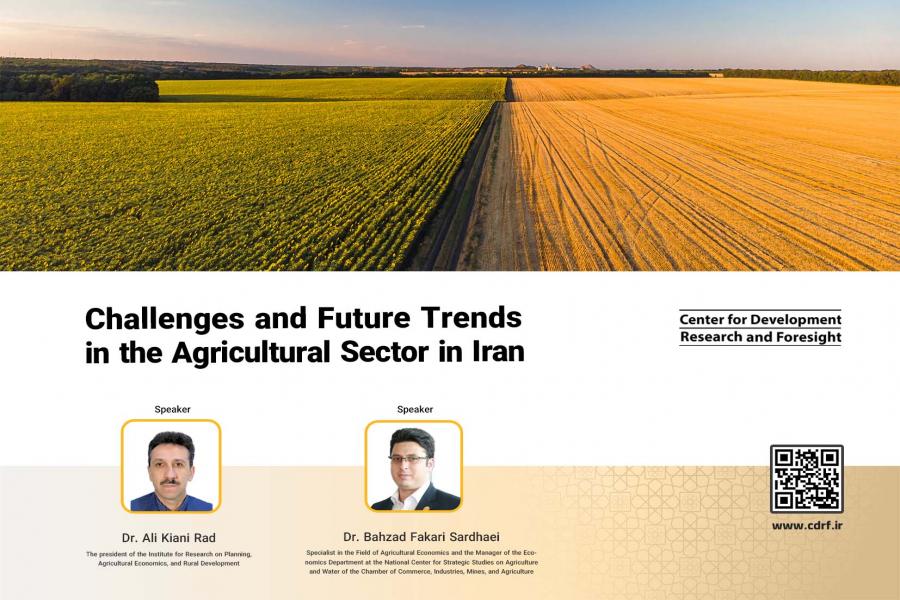
Challenges and Future Trends in the Agricultural Sector in Iran
Agriculture plays a critical role in Iran's economy, providing employment for over 15% of the workforce. While the sector holds immense potential for growth and development, it also faces significant challenges. Identifying these challenges and their impact on the agricultural system is essential for policymakers and stakeholders to formulate effective and targeted policies that address both current and potential issues, thereby enhancing the sector's resilience and enabling it to achieve sustainable development goals.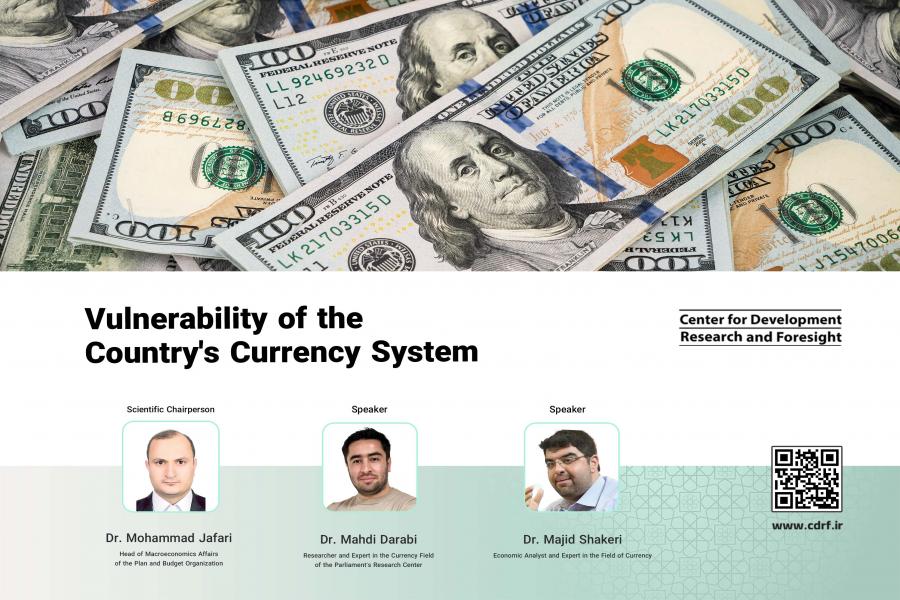
A Review of the Country's Foreign Exchange System: Identifying Vulnerabilities, Addressing Challenges, and Formulating Effective Policy Recommendations.
Exchange rates, as critical macroeconomic indicators, play a pivotal role in assessing a nation's economic resilience in the face of diverse shocks and uncertainties. Guided by their unique economic and political landscapes, as well as their status as oil exporters or importers, countries adopt specific currency regimes, each with its distinct set of requirements and constraints. An oil-exporting nation's economic priorities and strategies may diverge significantly from those of an oil-importing nation.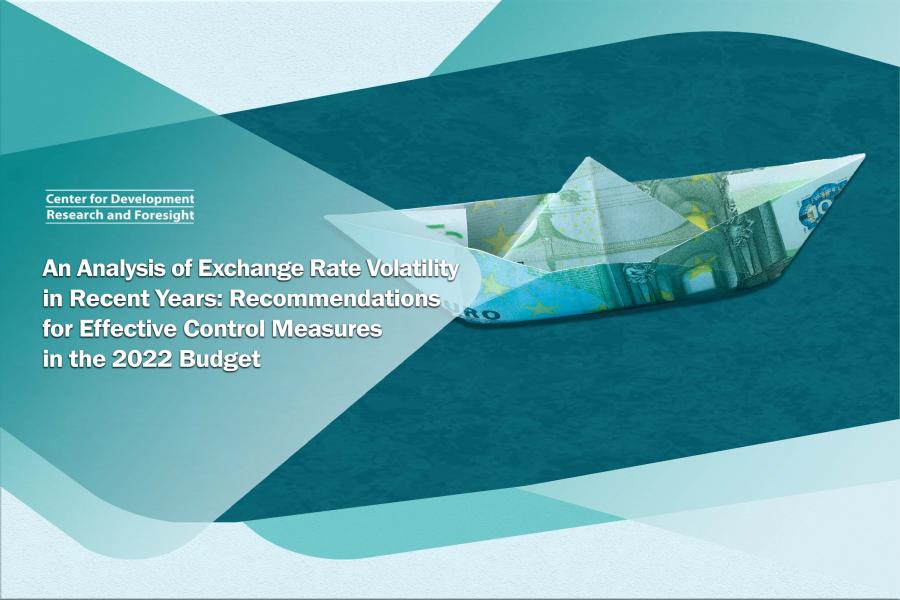
An Analysis of Exchange Rate Volatility in Recent Years: Recommendations for Effective Control Measures in the 2022 Budget
The foreign exchange market, a crucial element of the economy, exerts a profound influence on the regulation of other economic sectors. In recent years, significant exchange rate fluctuations have been observed, predominantly stemming from the direct impact of international sanctions and the improper management of the foreign exchange market. These fluctuations have emerged as a primary catalyst for macroeconomic instability.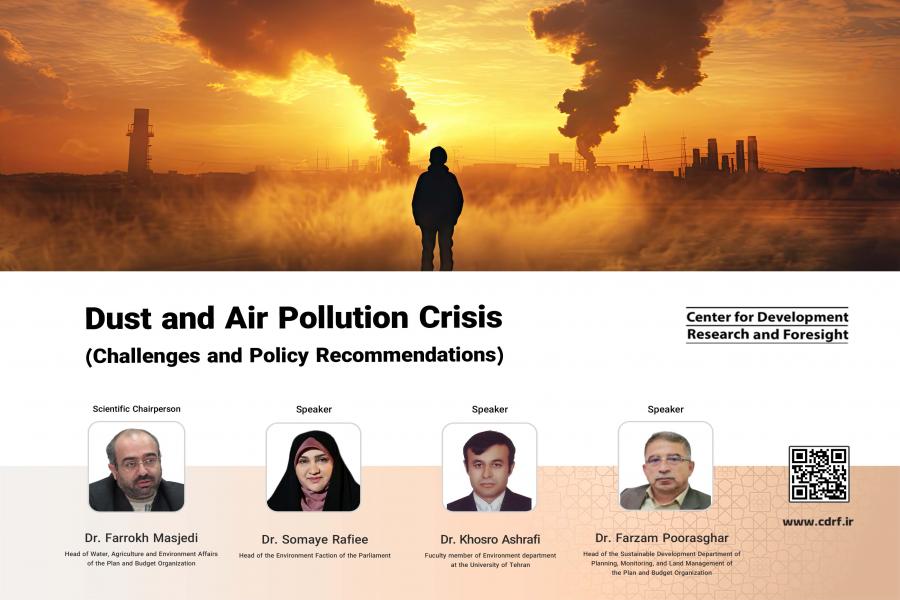
Dust and Air Pollution Crisis
The phenomenon of airborne dust particles as pollutants has detrimental implications for regions exposed to it. The challenges posed by dust and sandstorms are manifold, including weak environmental diplomacy in addressing transboundary environmental risks, overlapping responsibilities of government agencies, the growth of domestic dust emission sources influenced by deficiencies in water resource management, a lack of understanding of the interconnectedness of gradual disasters such as drought, desertification, land degradation, and dust storms, and the adoption of reactive rather than proactive approaches.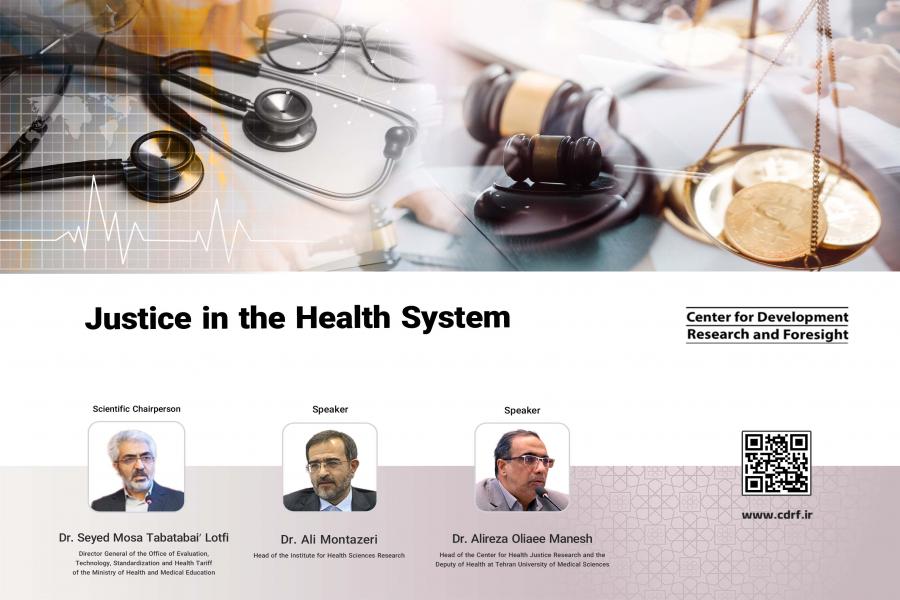
Justice in the Healthcare System
In the realm of healthcare, justice signifies equal access to healthcare services for all individuals. Key indicators for evaluating justice in health include justice in distribution, payment, access, and financial provision. Health equality entails implementing policies and allocating resources in a manner that individuals with fewer resources and those facing deprivation and discrimination (due to factors such as race, gender, age, disability, or income) experience significant improvements in their health and quality of life.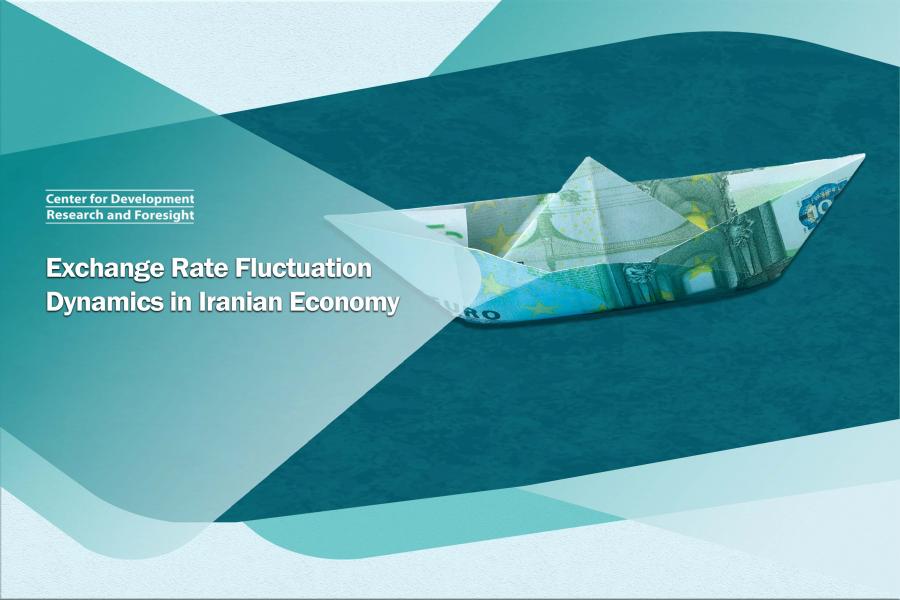
Exchange Rate Fluctuation Dynamics in Iranian Economy
Iran's long-standing exchange rate volatility, marked by a persistent upward trend throughout the past century, has intensified in the latter half of the 20th century. These exchange rate shocks have primarily stemmed from various protectionist and regulatory policies implemented by successive Iranian governments. The prevalence of multiple exchange rates, attempts to suppress exchange rates through administrative measures, and the fixation of exchange rates have all contributed to these fluctuations. A notable turning point occurred in 2018 when the Iranian government introduced a preferential exchange rate of 4200 alongside the prevailing market rate, in response to the United States' withdrawal from the Joint Comprehensive Plan of Action (JCPOA) and the subsequent need to manage the foreign exchange market.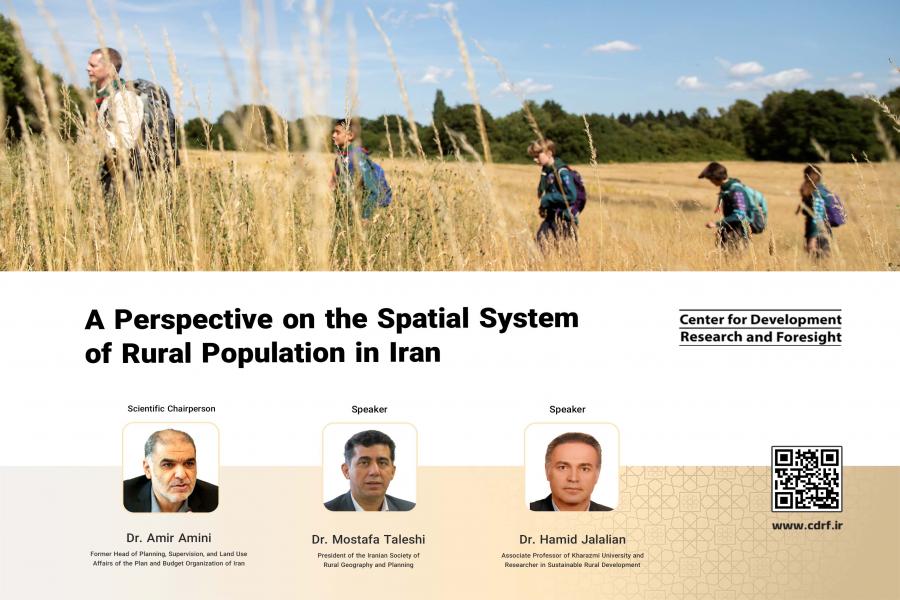
Exploring the Spatial Structure and Characteristics of Rural Population in the Country
Given the significance of the subject and the rural microsystem's role in shaping Iran's broader land area macro-ecosystem, an initial assessment of rural areas based on selected macro-social, economic, physical, and institutional indicators reveals that this microsystem faces obstacles in fulfilling its intended role in the national development landscape. These challenges have negatively impacted the rural system's vitality due to their cascading effects.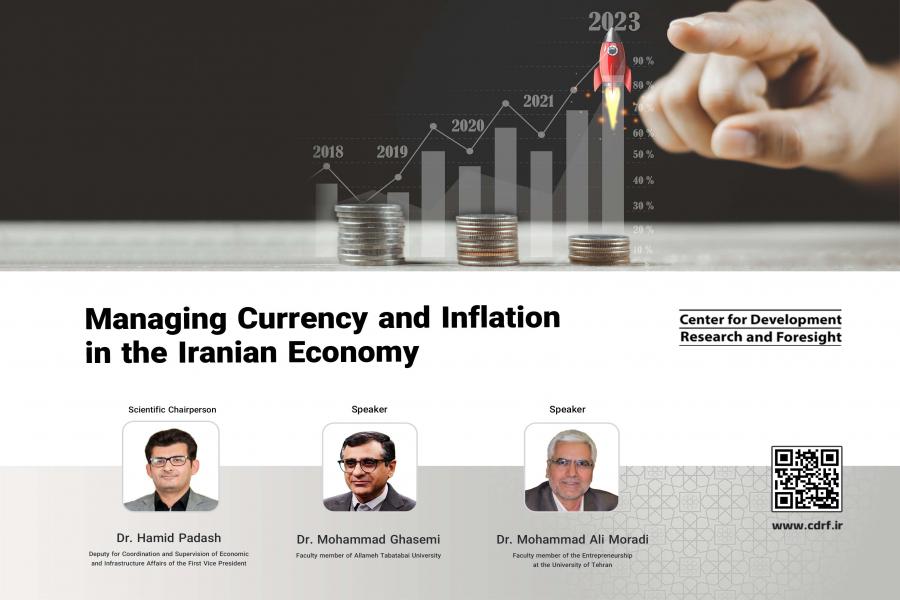
Exchange Rate and Inflation Policies in Iran's Economy
Inflation and exchange rate fluctuations have been persistent challenges in Iran's economy for several decades, leaving policymakers grappling with these issues. Double-digit inflation rates and currency shocks have become almost commonplace, characterizing the country's macro-economy for nearly half a century. However, in the past five years, these two issues have exacerbated Iran's economic situation, leading to unprecedented levels of inflation and exchange rates. Addressing inflation has become a priority in the country's policymaking, as reflected in the current year's slogan.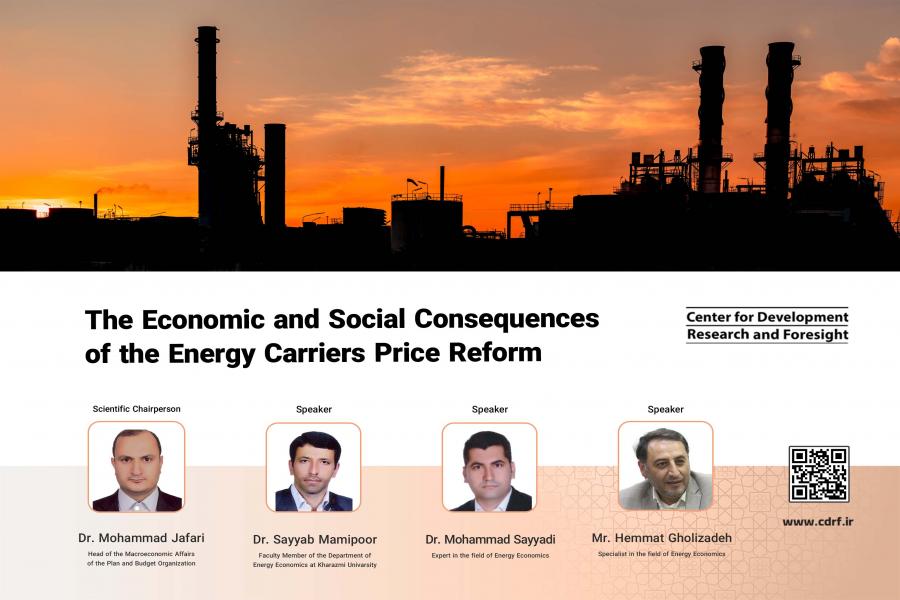
The Economic and Social Consequences of the Energy Carriers Price Reform
Given the significant role of energy in Iran’s economy, the pricing of energy carriers, particularly gasoline, has always been a critical factor in the implementation of government policies and the overall economy of Iran. The Energy Subsidy Reform policy and the appropriate pricing method have consistently posed challenges, with various governments grappling with economic, social, and environmental challenges in gasoline price reforms.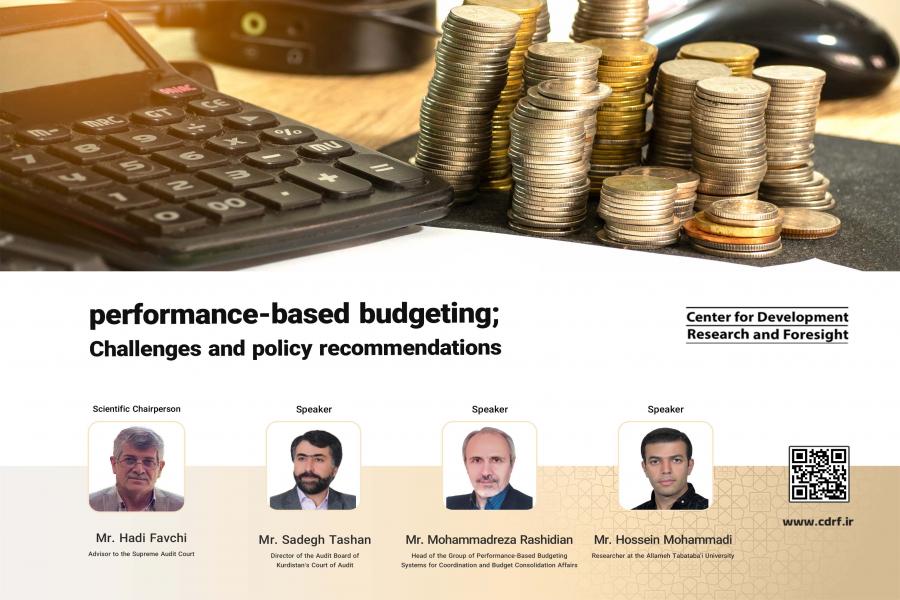
performance-based budgeting; Challenges and policy recommendations
Performance-based budgeting fosters optimal resource utilization, enhances productivity through efficiency improvement, facilitates the achievement of goals, aligns strategic objectives with operational plans, and promotes transparency and accountability. When properly implemented and scientifically managed, this type of budgeting lays the groundwork for good governance and facilitates the realization of societal values.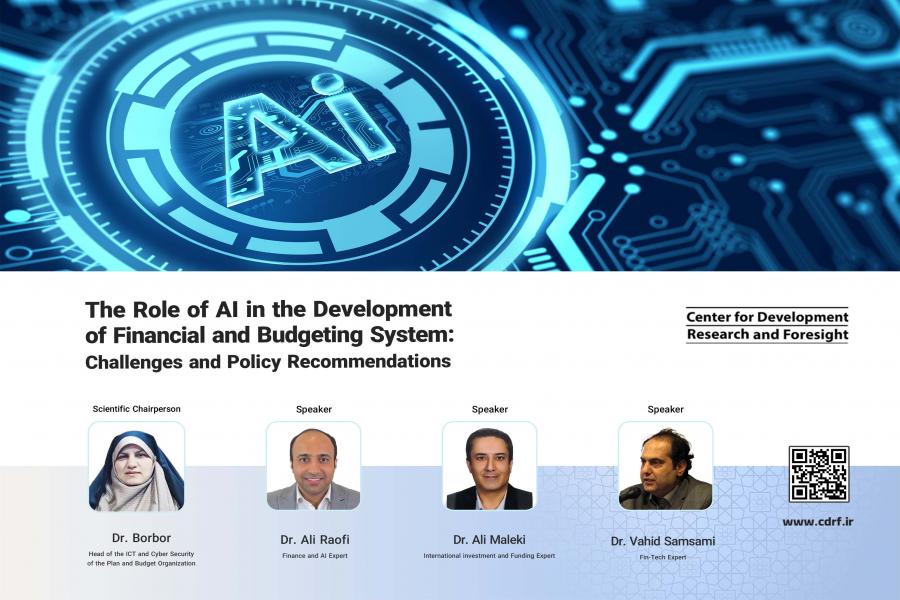
Artificial Intelligence and its role in the Development of Financial Systems and Budgeting
Artificial intelligence (AI) has emerged as a transformative technology, extensively studied and developed over the past seven decades. Its growing prominence has rendered it an indispensable tool for governments worldwide. While AI's potential to enhance decision-making power and quality remains an ongoing area of inquiry, its application in certain policy domains, such as public budget drafting, has received limited attention. This paper delves into the untapped potential of AI in budget allocation, a critical aspect of financial policy.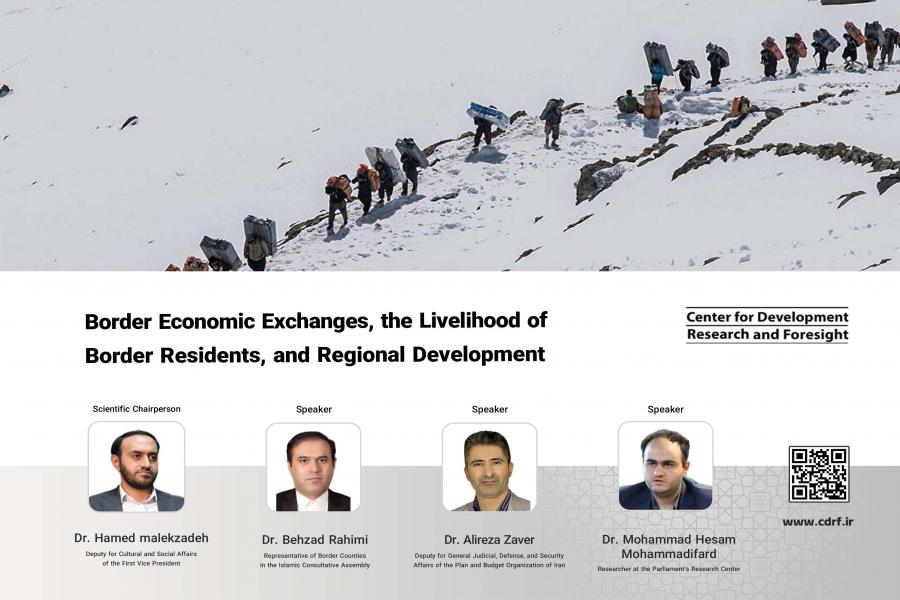
Border Economic Challenges: The livelihood of Residents and Regional Development
The government of Islamic Republic of Iran has long recognized the importance of harnessing the capabilities of the public sector to align with its strategic objectives. To effectively achieve this decentralization, local governance structures must be activated and integrated within the broader framework of national governance. A clear model and procedure for aligning various institutions under local and central governance is crucial for facilitating border economic exchanges. Addressing the existing challenges faced by border residents and leveraging the potential benefits of neighborhood relations require a comprehensive approach that transcends mere confrontation and intervention. Only through a well-defined model of cooperation and collaboration can the existing laws and plans be effectively implemented to improve the livelihoods of border communities and foster regional prosperity.
Maritime Development is a Key to Boast Economic Growth
The recent conference at the Center for Development Research and Foresight highlighted the growing importance of the maritime economy to the country's future. Experts and officials convened to discuss the potential of the seas and coasts to drive growth, create jobs, and address some of the country's long-term challenges.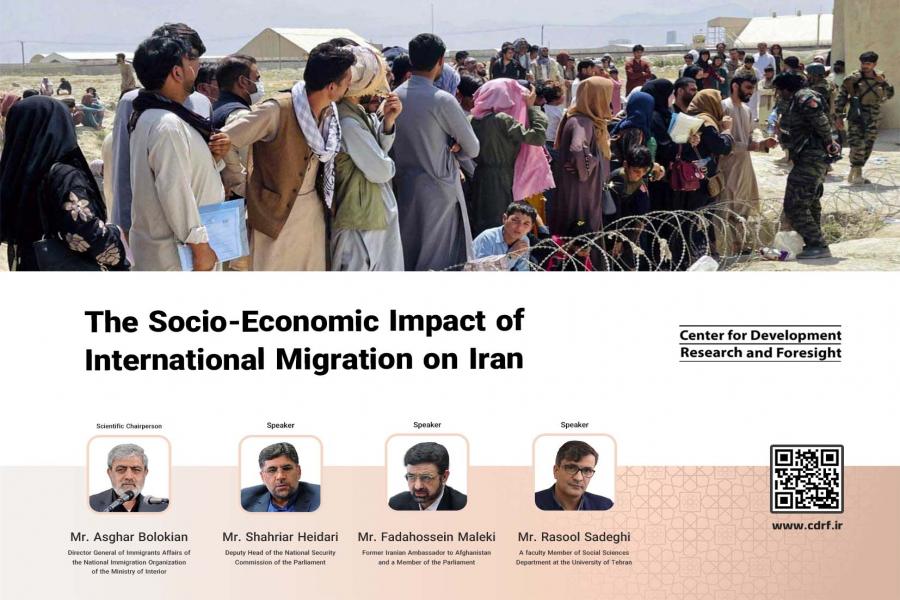
The Socio-Economic Impact of International Migration on Iran
As the world grapples with the complexities of mass migration, Iran finds itself at the center of a regional storm. Nestled between conflict-ridden Iraq and Afghanistan, the country has become a haven for millions of refugees seeking refuge and a better life. This influx, however, has brought with it a multitude of challenges, prompting calls for a comprehensive national response.
The Role of Universities in the Governance and Development of the Country; The Duality of Research-Centric or Problem-Centric
The conference at the Center for Development and Foresight Research titled “The Role of Universities in the Governance and Development of the Country; The Duality of Research-Centric or Problem-Centric” addressed the role of universities in the governance and development of a country. It is stated that universities have four main responsibilities: educating and training specialized human resources, advancing the frontiers of knowledge, providing services to society, and promoting societal culture.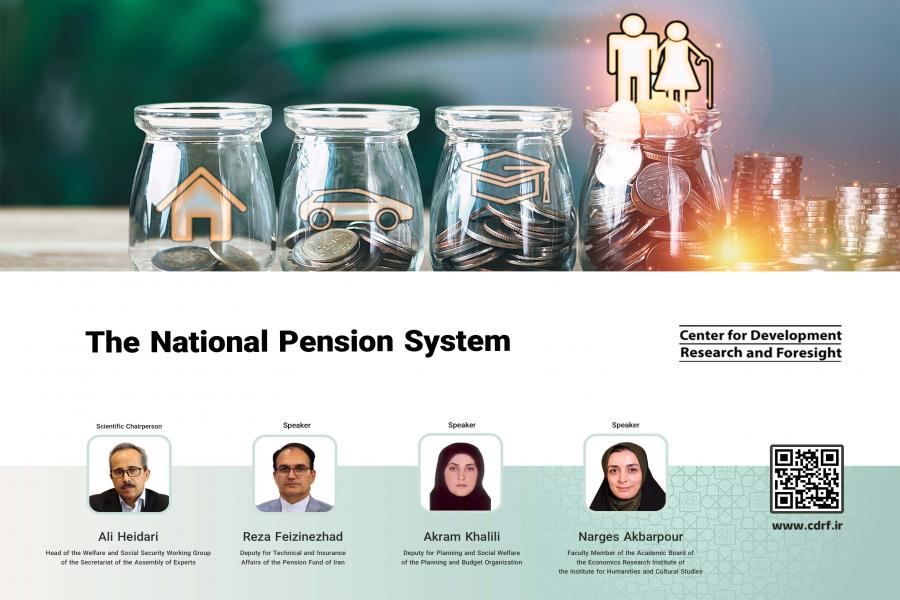
Country’s Retirement System: Challenges and Policy Recommendations
In the conference at the Center for Development Research and Foresight titled “Country’s Retirement System: Challenges and Policy Recommendations”, it is stated that Iran's retirement system is facing a number of challenges, including demographic changes, economic instability, and inadequate coverage for informal sector workers. The government is considering reforms to address these challenges, such as increasing the retirement age, limiting early retirement, and reducing the rate of pension accrual. However, some experts are concerned that these reforms may not be enough to save the system in the long run.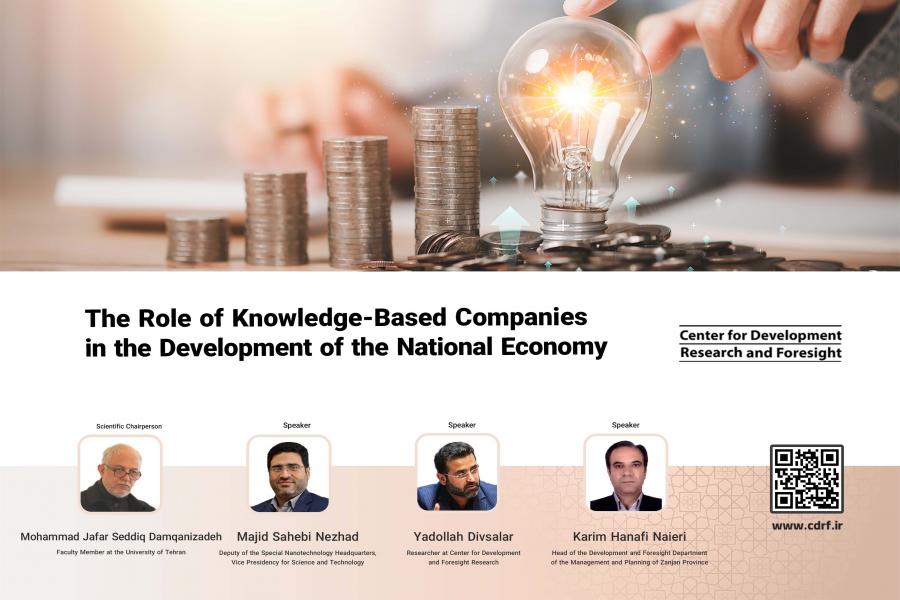
The Role of Knowledge-Based Companies in the Development of the National Economy
The conference titled “The Role of Knowledge-Based Companies in the Development of the National Economy” was held at the Center for Development Research and Foresight to discuss the role of knowledge-based companies in the country's development. The speakers at the conference emphasized the importance of knowledge-based companies for Iran's economic future, due to factors such as sanctions, the country's economic structure, and its geographical location.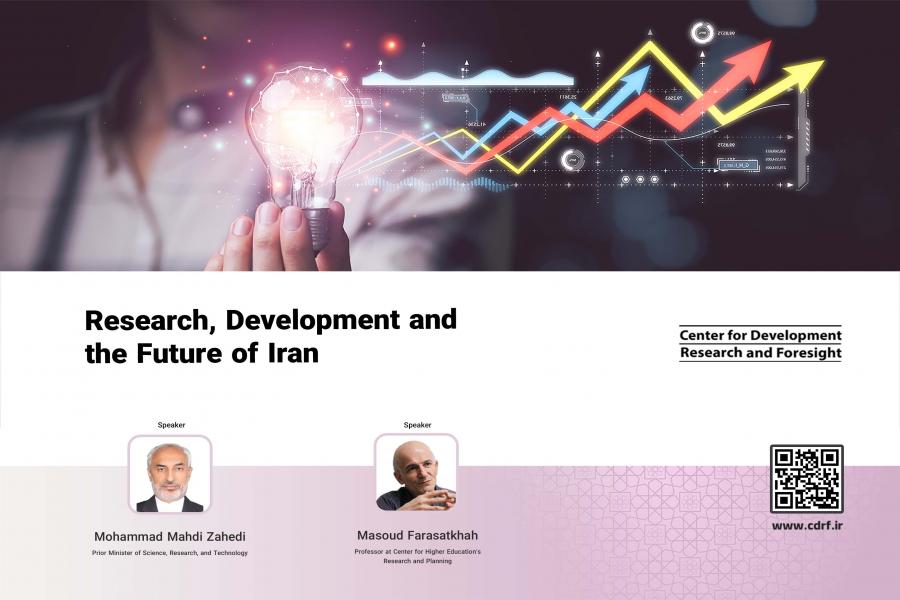
The future of Iran from the lens of Scholars
Iranian officials and experts are calling for a major shift towards "big science" as the key to unlocking the country's full potential and navigating the complexities of the 21st century. This comes amidst a heated debate on the role of science in Iran's development, with emphasis placed on moving beyond small-scale research towards large-scale initiatives the Center for Development Research and Foresight.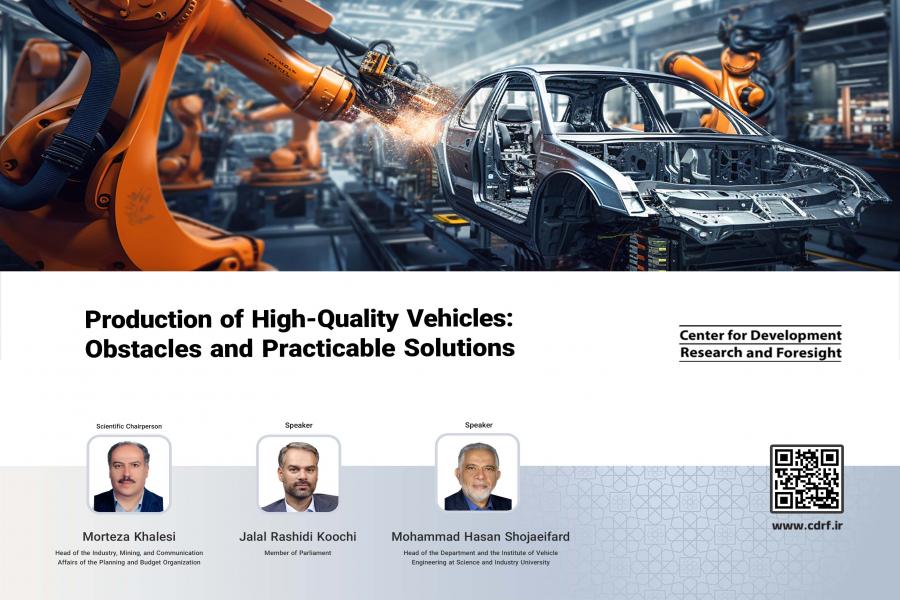
High-Quality Automative Production: Obstacles and Practicable Solutions
In the conference at the Center for Development Research and Foresight it is declared that while Iran's auto industry is roaring back to life, its path to success is far from smooth. With a mix of challenges and opportunities, the country's carmakers are navigating a complex landscape of sanctions, government control, and a growing demand for mobility.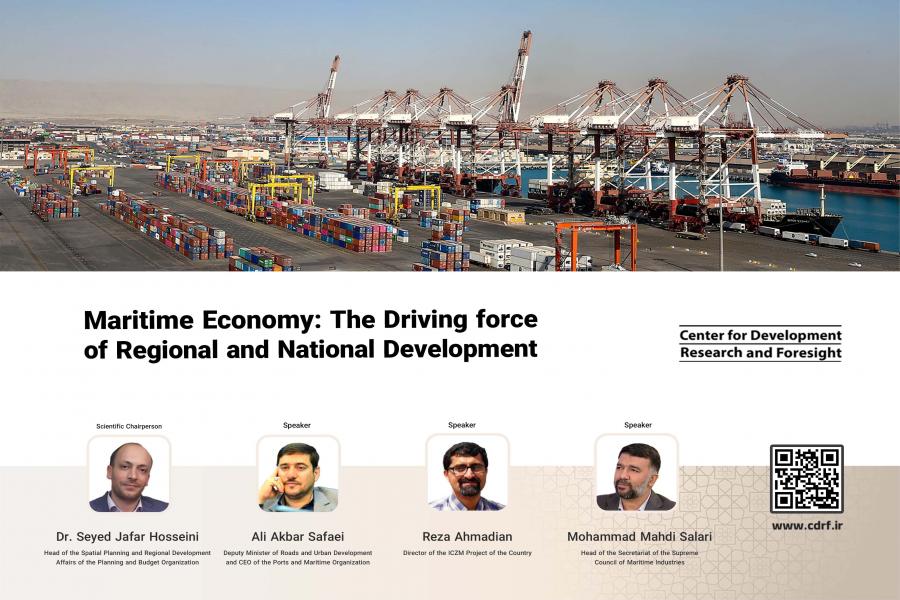
Maritime Development is a Key to Boast Economic Growth
The recent conference at the Center for Development Research and Foresight highlighted the growing importance of the maritime economy to the country's future. Experts and officials convened to discuss the potential of the seas and coasts to drive growth, create jobs, and address some of the country's long-term challenges.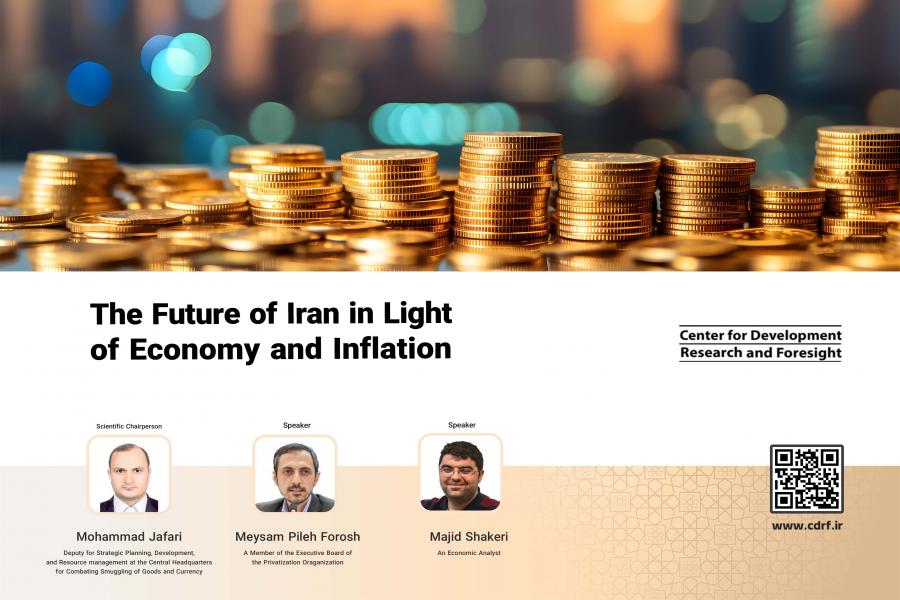
The Future of Iran: From an Economic Perspective
The Center for Development Research and Foresight hosted a pivotal conference titled “The Future of Iran: From an Economic Perspective” with the participation of leading economists and policymakers pointing out the persistent inflation, anemic growth, and deep-seated structural issues.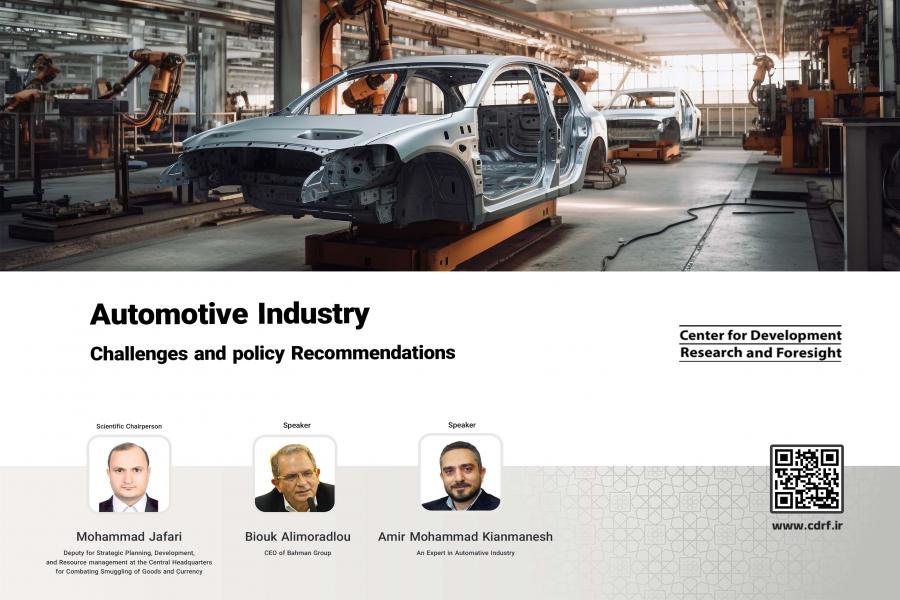
Automotive Industry: Challenges and Policy Recommendations
The recent conference at the Center for Development Research and Foresight, titled "Automotive Industry: Challenges and Policy Recommendations," was held with the participation of notable figures. These included Mohammad Jafari, Deputy for Strategic Planning, Development, and Resource Management of the Central Headquarters for Combating Smuggling of Goods and Currency; Biouk Alimoradlou, CEO of Bahman Group; and Amir Mohammad Kian Manesh, an expert in the automotive industry.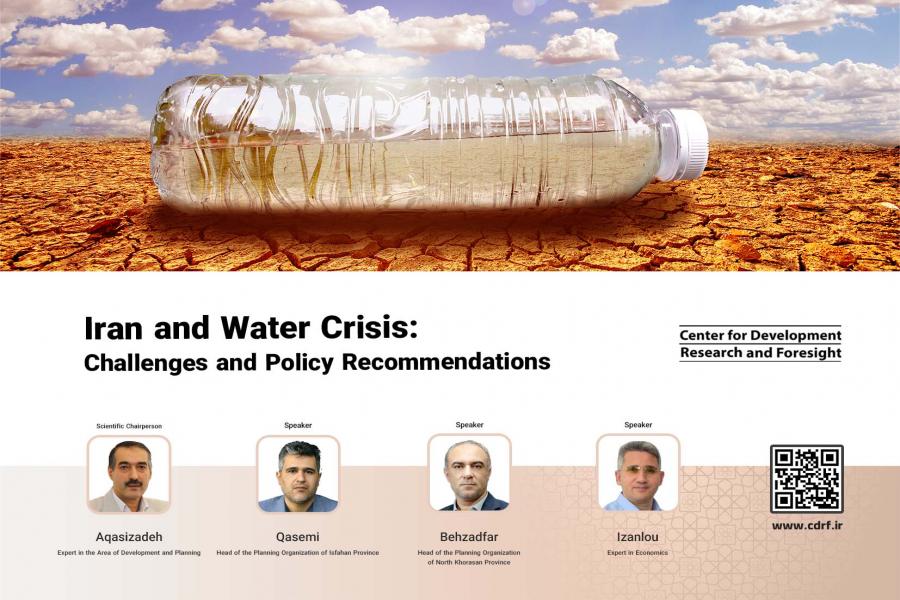
Iran's Water Crisis: A Looming Threat, Experts Warn
Iran's water crisis, long simmering beneath the surface, has reached a boiling point, according to experts who gathered at a conference titled “Iran's Water Crisis: A Looming Threat, Experts Warn” at the Center for Development Research and Foresight. The conference brought together leading figures in planning, development, economics, and water resource management to discuss the challenges and potential solutions to this pressing issue.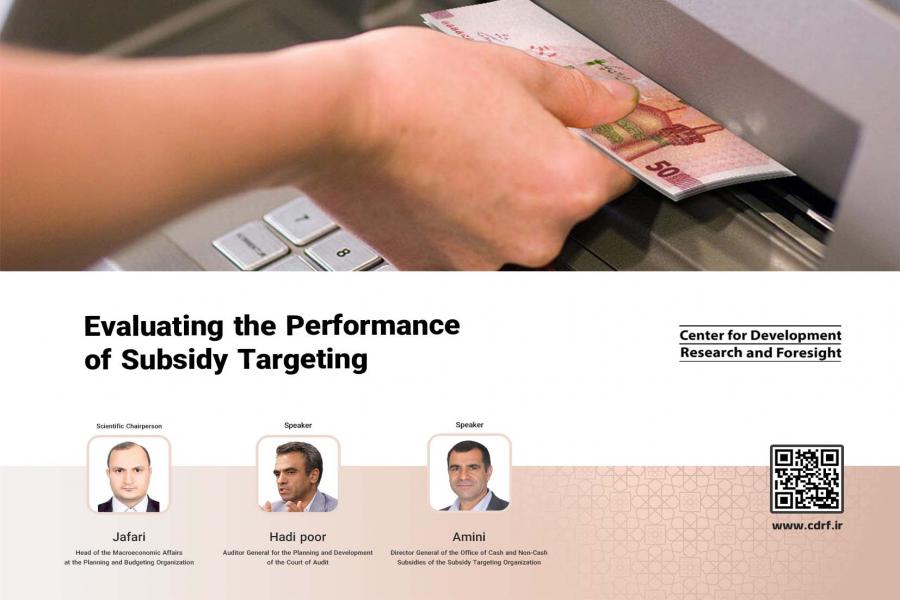
Evaluating the Performance of Subsidy Targeting
A heated debate unfolded at the conference titled “Evaluating the Performance of Subsidy Targeting” at the Center for Development Research and Foresight with key figures clashing over the effectiveness and future of the nation's complex support system.
The Importance of Data Mining in Financial Transparency
The recent conference at the Center for Development Research and Foresight brought together experts to discuss how data governance and mining can improve the country's budgeting process. The conference was part of an ongoing series aimed at improving budget transparency and efficiency.
Parliamentary Intervention in Budgeting: A Scrutiny-Seeking Issue
The Conference titled “Parliamentary Intervention in Budgeting: A Scrutiny-Seeking Issue” with a concentration on improving the budgeting process in Iran, held at the Center for Development Research and Foresight, brought together experts to discuss the role of parliament in budget decision-making. The conference highlighted the ongoing debate about the extent to which parliament should be involved in the budgeting process, with some arguing for more oversight and others emphasizing the need for executive flexibility.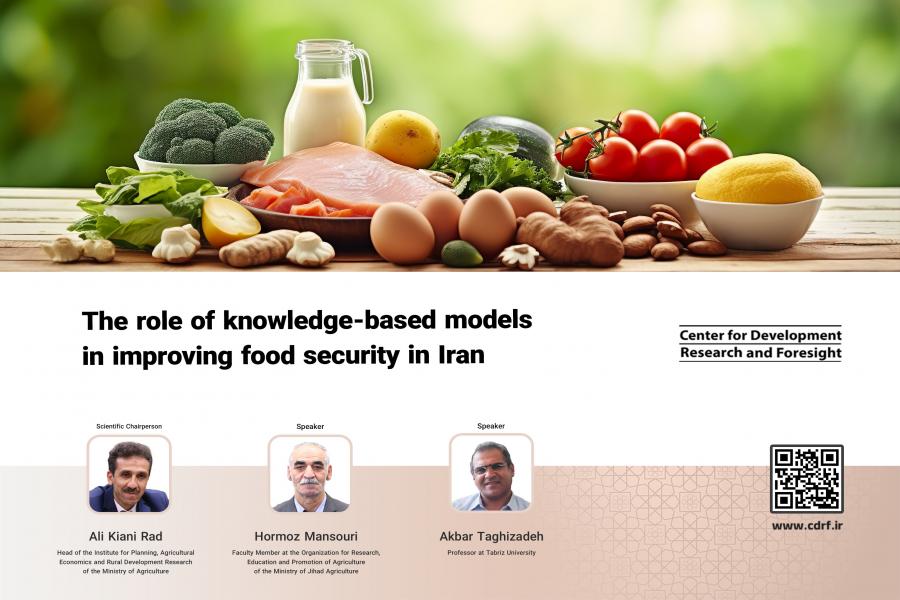
The Role of Knowledge-Based Models in Improving Food Security in Iran
The conference titled “The Role of Knowledge-Based Models in Improving Food Security in Iran” at the Center for Development Research and Foresight brought together experts to discuss the critical issue of food security in the country. The conference highlighted the challenges facing Iran's agricultural sector and explored potential solutions.
Shedding light on the Minimum Wage Policy in Iran
The recent conference titled “Shedding light on the Minimum Wage Policy in Iran” at the Center for Development Research and Foresight brought together economists and policymakers to discuss the country's wage policies. Hojjatollah Mirzaei, a faculty member at Allameh Tabataba'i University, criticized the recent wage hikes as inadequate and unevenly implemented. He argued that they failed to keep pace with inflation, leaving workers worse off, and called for the government to be more transparent about the basis for the increases. Mirzaei also expressed concern about the lack of consistency across different sectors, noting that some firms struggle to comply with the mandated increases. He emphasized the need for a more nuanced approach that considers the specific challenges of different industries.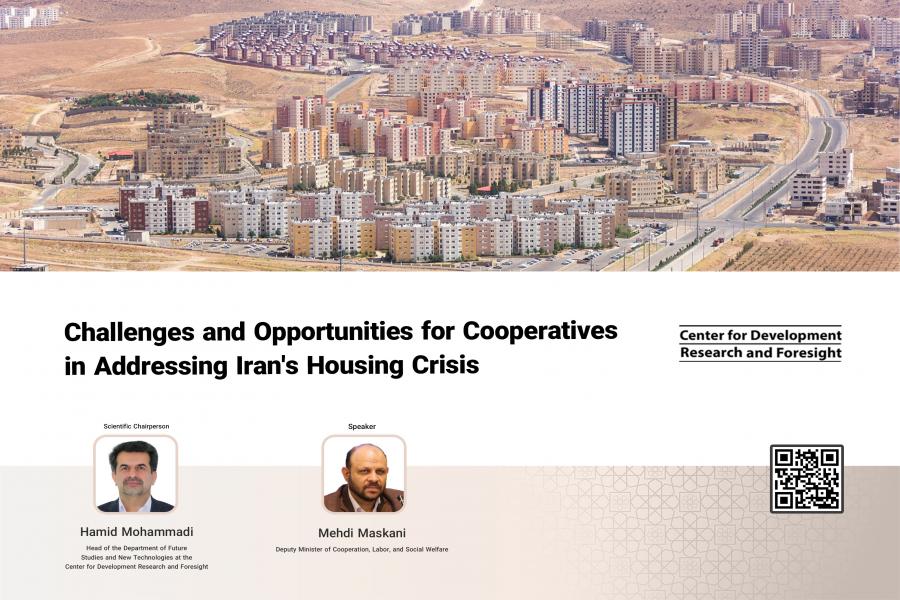
Challenges and Opportunities for Cooperatives in Addressing Iran's Housing Crisis
The recent conference of “Challenges and Opportunities for Cooperatives in Addressing Iran's Housing Crisis” at the Center for Development Research and Foresight brought together experts from various fields to address the critical issue of housing affordability in Iran. The conference highlighted the challenges faced by the Iranian housing market and explored potential solutions, particularly through the lens of cooperative housing models.
Unlocking Potential: Reforming Iran's Free Zones
The conference titled “Unlocking Potential: Reforming Iran's Free Zones” was held at the Center for Development Research and Foresight to discuss the performance of free zones in Iran. The conference was attended by stakeholders from the public and private sectors, including government officials, academics, and businesspeople.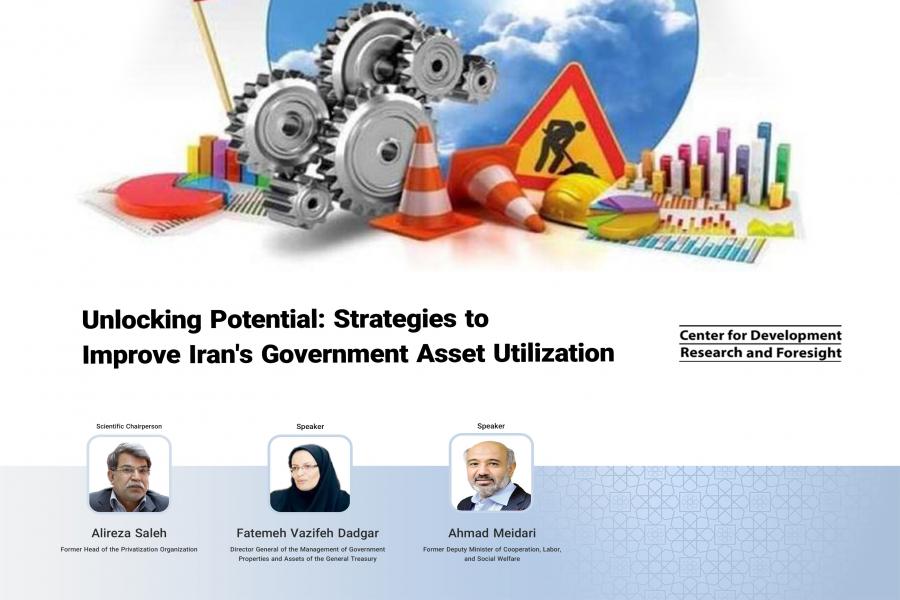
Unlocking Potential: Strategies to Improve Iran's Government Asset Utilization
In the conference titled “Unlocking Potential: Strategies to Improve Iran's Government Asset Utilization” at the Center for Development Research and Foresight aimed at addressing the challenges of managing government assets, Iranian officials discussed issues ranging from inefficient asset allocation to the need for legal reforms. The conference brought together experts from various sectors to explore strategies for maximizing the value of government-owned properties and resources.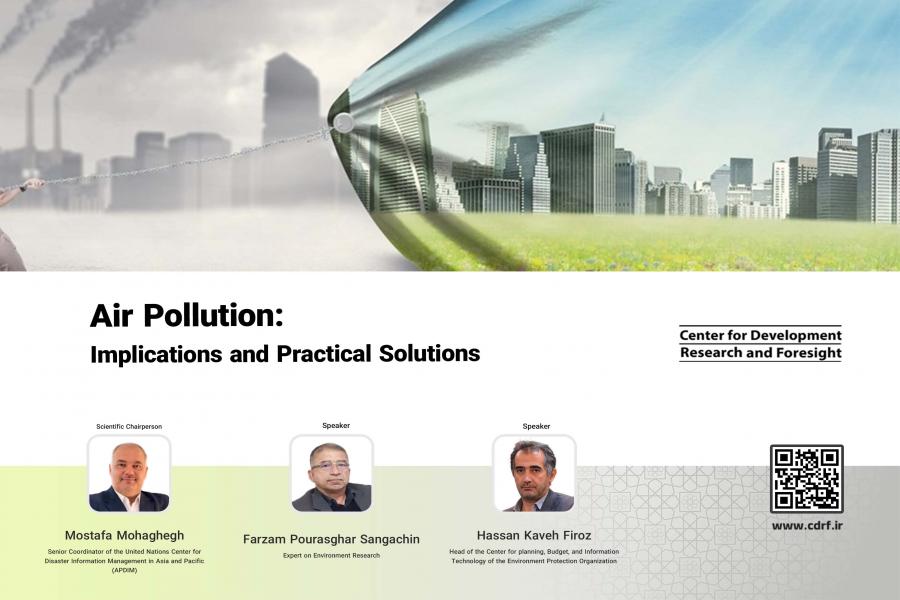
Air Pollution: Challenges and Operational Solutions
Air pollution is a major threat facing the world today, with millions of deaths attributed to it each year, according to experts who convened at the scientific-specialized conference titled "Air Pollution: Challenges and Operational Solutions" at the Center for Development Research and Foresight.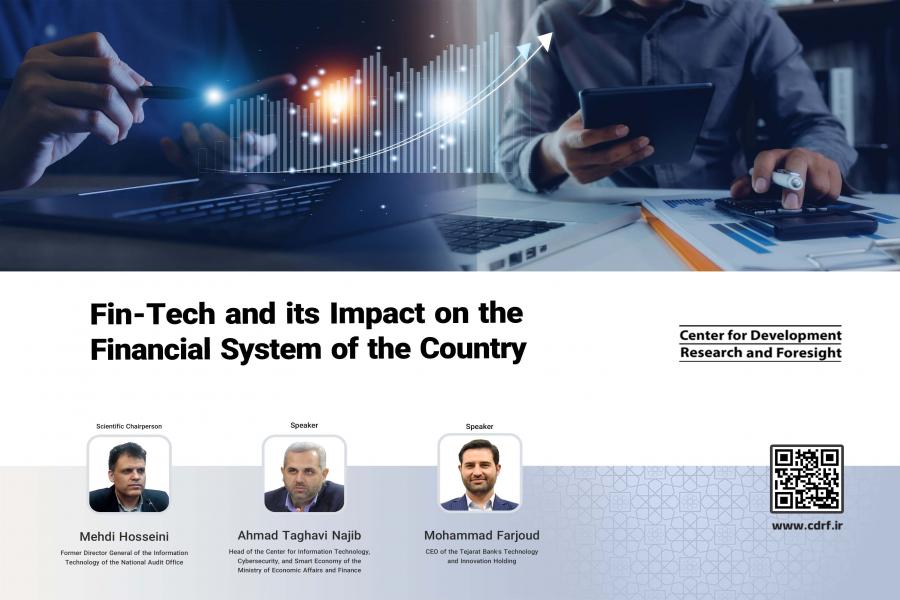
The Role of Financial Technologies in the Country’s Economic System: Challenges and Policy Recommendations
The scientific-specialized conference, titled "The Role of Financial Technologies in the Country's Economic System: Challenges and Policy Recommendations" at the Center for Development Research and Foresight brought together experts from various fields to discuss the potential and pitfalls of FinTech in Iran's developing economy.
Extraterrestrial Cultivation: Water and Food Security
In a move that could revolutionize its agricultural sector, Iran is setting its sights on extraterrestrial cultivation, aiming to tap into the water and soil resources of other countries to improve food security and expand its agricultural exports. This ambitious plan was discussed at the conference titled “Extraterrestrial Cultivation: Water and Food Security” at the Center for Development Research and Foresight.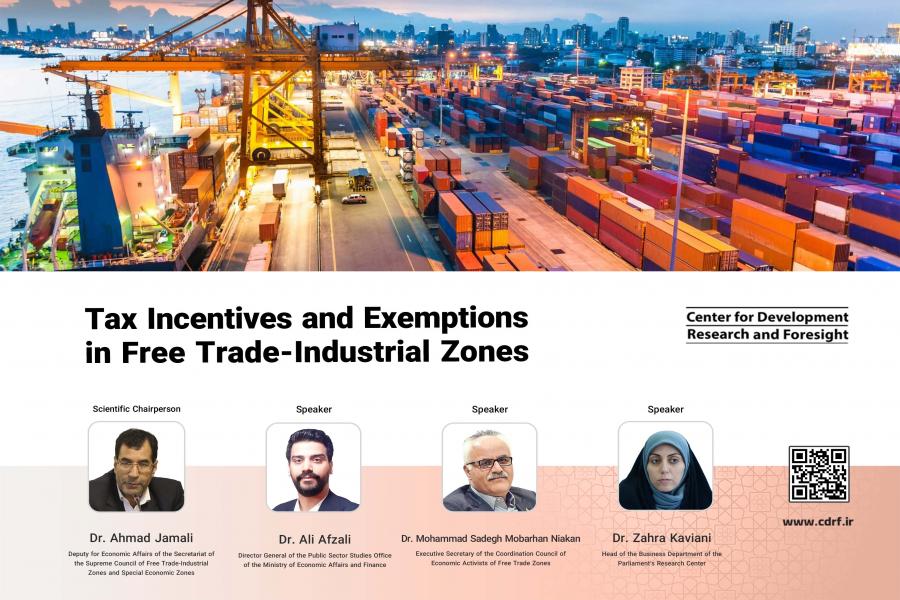
Incentives and Tax Exemptions in Free Trade and Industrial Zones
Concerns are mounting about the effectiveness of Iran's free trade zones, with their number ballooning from 8 to 18 and their impact falling short of expectations. This has sparked calls for reform, focusing on specialization, targeted incentives, and a renewed emphasis on exports.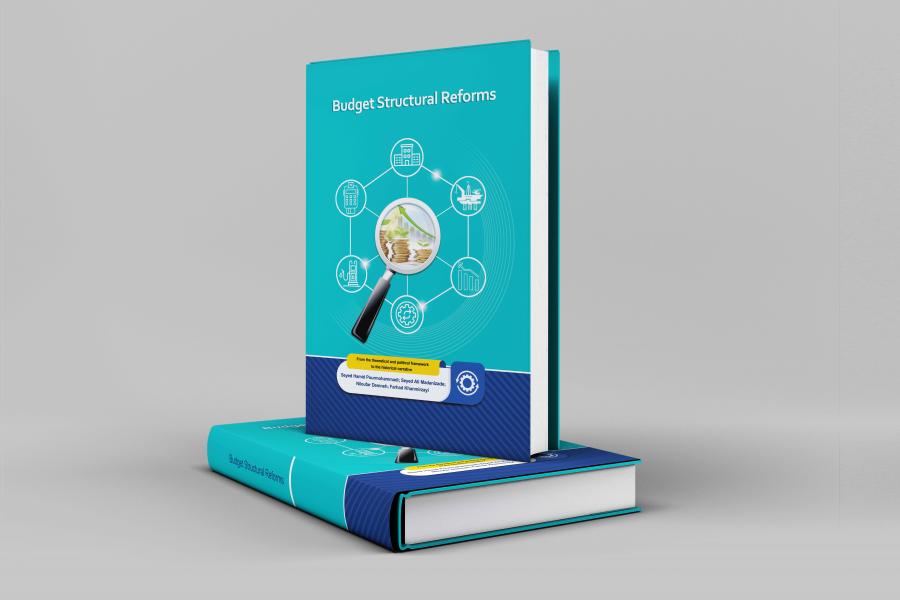
Structural Budget Reforms (From Theoretical and Policy Framework to Historical Narrative)
The book Structural Budget Reforms (From Theoretical and Policy Framework to Historical Narrative), published by the Center for Development and Foresight Research, provides a comprehensive overview of the structural budget reforms program in Iran.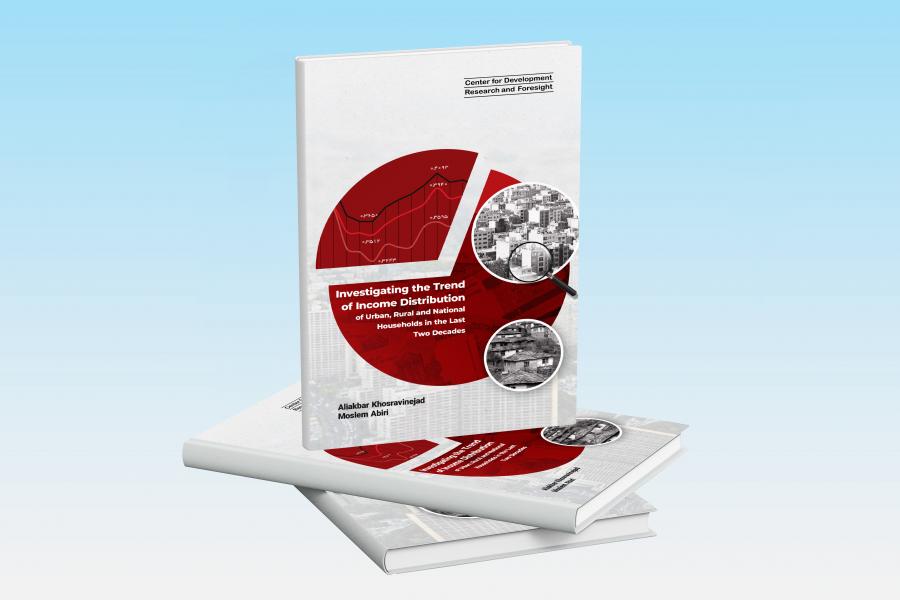
Investigation of the Income Distribution Trend of Urban, Rural, and National Households in the Last Two Decades
The new book published by the Center for Development Research and Foresight, "Investigation of the Income Distribution Trend of Urban, Rural, and National Households in the Last Two Decades," is tackling the ever-present issue of income inequality in Iran.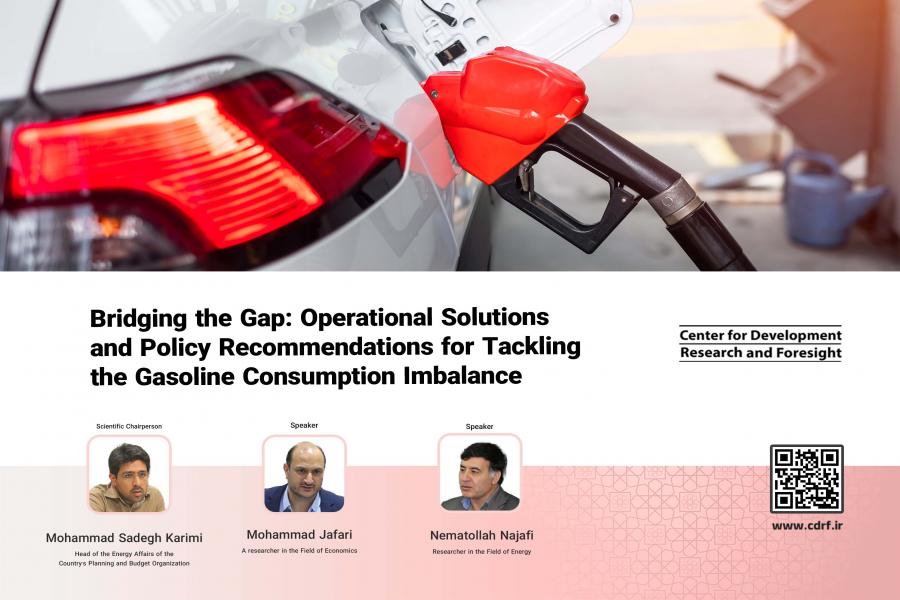
Bridging the Gap: Operational Solutions and Policy Recommendations for Tackling the Gasoline Consumption Imbalance
Iran is facing a growing problem at the pump. The country is burning through gasoline at an alarming rate, and experts are calling for action. In the recent conference titled “Bridging the Gap: Operational Solutions and Policy Recommendations for Tackling the Gasoline Consumption Imbalance” at the Center for Development Research and Foresight, key figures from government and academia discussed a range of solutions to bridge the gap between Iran's fuel consumption and supply.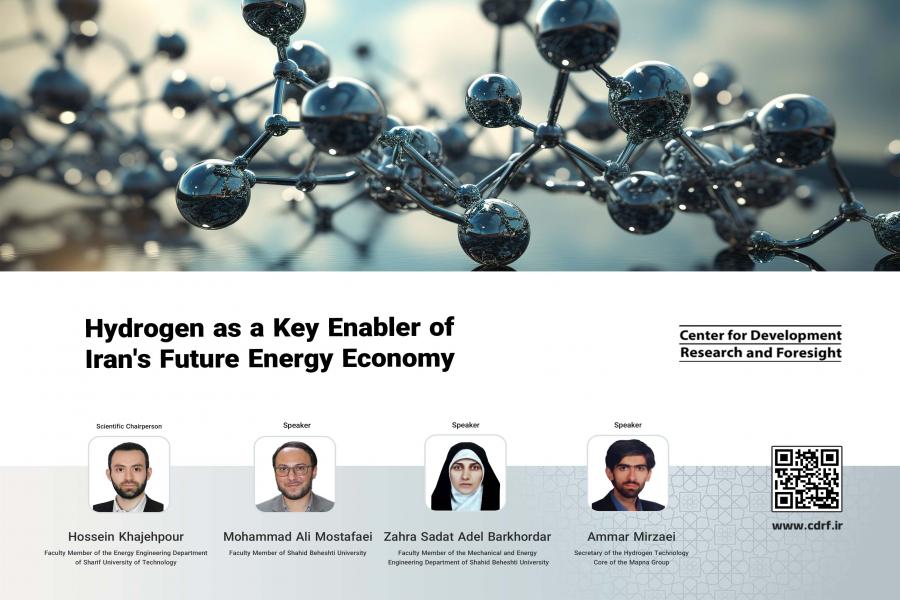
Hydrogen as a Key Enabler of Iran's Future Energy Economy
Could hydrogen be the key to unlocking Iran's clean energy future? That's the question experts tackled at the recent conference titled “Hydrogen as a Key Enabler of Iran's Future Energy Economy” hosted by the Center for Development Research and Foresight (CDRF).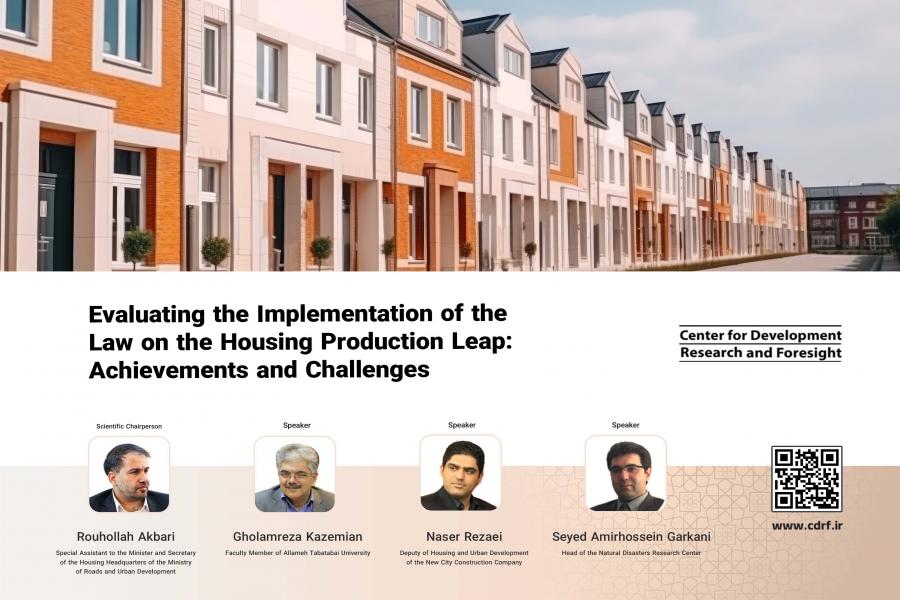
Evaluating the Implementation of the Law on the Housing Production Leap: Achievements and Challenges
In a recent conference titled "Evaluating the Implementation of the Law on the Housing Production Leap: Achievements and Challenges" hosted by the Center for Development Research and Foresight (CDRF) it has been an enlightening debate surrounding the effectiveness of the Law on Housing Production Leap.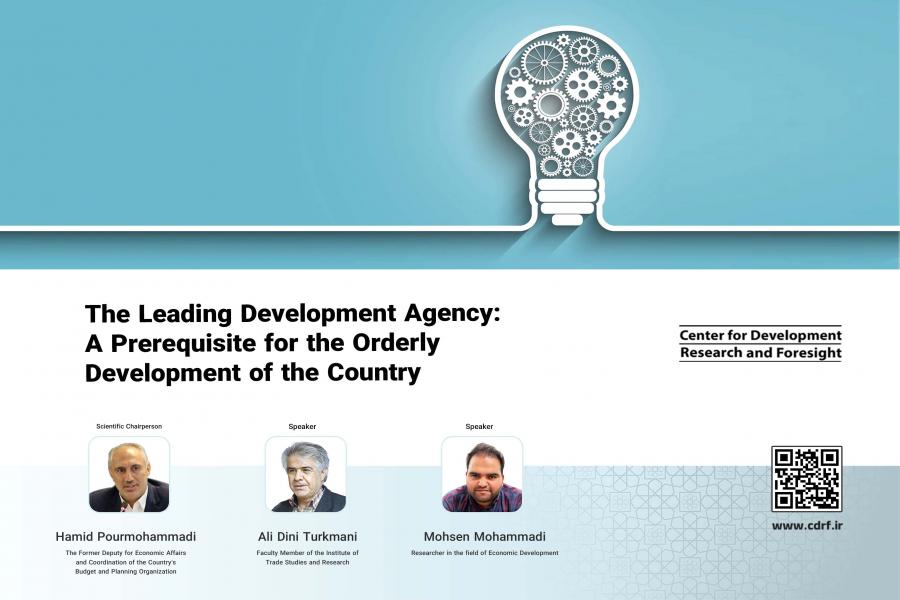
The Leading Development Agency: A Prerequisite for the Orderly Development of the Country
Iran might be looking to a new approach to development. The recent conference at the Center for Development Research and Foresight in tandem with the University of Tehran's Faculty of Governance titled "The Leading Development Agency: A Prerequisite for the Orderly Development of the Country" addressed the significance of a super agency with more power and a sharper focus than existing government bodies.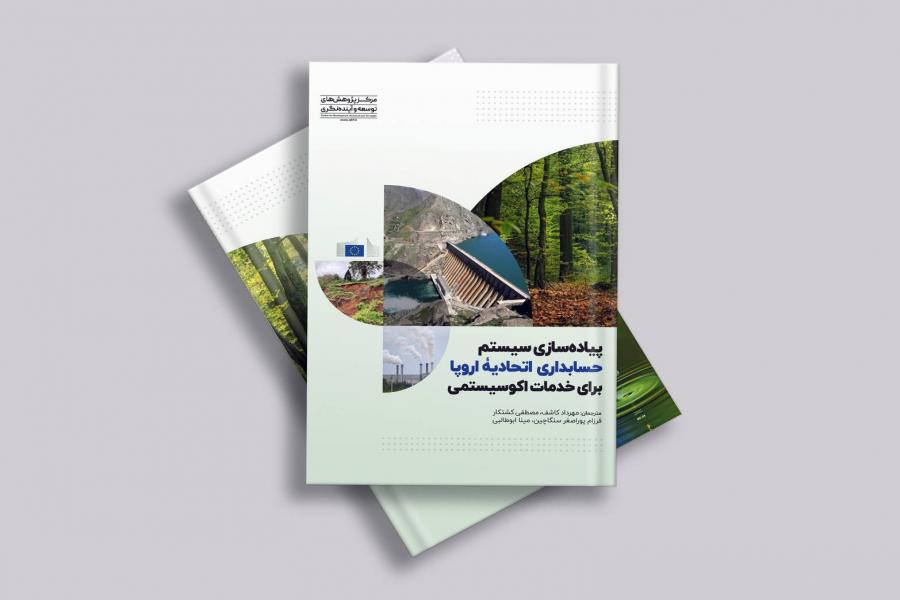
کتاب پیاده‌سازی سیستم حسابداری اتحادیه اروپا یرای خدمات اکوسیستمی منتشر شد
ترجمه کتاب «پیاده‌سازی سیستم حسابداری اتحادیه اروپا یرای خدمات اکوسیستمی» به نویسندگی لساندرا لانوت، سازا والیچیلو، کیارا پلس، گریزیا زولیان و یواخیم میس و به ترجمه مهرداد کاشف، مصطفی کشتکار، فرزام پوراصغر سنگاچین و مینا ابوطالبی توسط انتشارات مرکز پژوهش‏‌‎های توسعه و آینده ‏نگری منتشر شد..jpg)
SMEs and Strategies to Overcome Barriers: The Role of Strategically-Aligned and Geographically-Proximate Countries
An international meeting held on April 24, 2024, at the Center for Development Research and Foresight, brought together experts to discuss the importance of small and medium-sized enterprises (SMEs) for economic growth and job creation, with a particular focus on the role of strategically-aligned and geographically-proximate countries. The meeting, titled "SMEs and Strategies to Overcome Barriers: The Role of Strategically-Aligned and Geographically-Proximate Countries," was led by Aidin Salamzadeh, the vice dean of the faculty of business management at the University of Tehran, who welcomed professor Galina Shirokova, the director of the Center for Strategic Entrepreneurship at HSE University of Saint Petersburg, Morteza Mohammadi Zanjireh, a faculty member at Imam Khomeini International University, and 17 university professors from St Petersburg University, Moscow State University, University of Calgary, and University of Notre Dame. 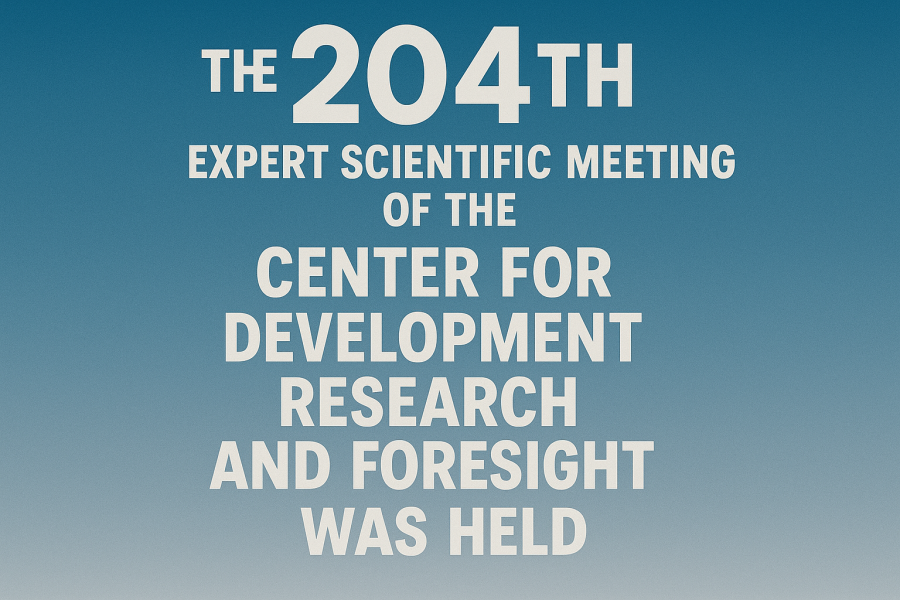
The 204th Expert Scientific Meeting of the Center for Development Research and Foresight (CDRF) was held.
According to the Public Relations Office of the CDRF, the 204th Expert Scientific Meeting of the CDRF was held on Tuesday, April 15, 2025, under the title 'The Government's Orientation in Fulfilling the 1404 Slogan (Investment for Production).
The 202nd Expert Scientific Meeting of the Center for Development Research and Foresight (CDRF) was held.
According to the Public Relations Office of the CDRF, the fifth international meeting and the 202nd expert scientific meeting of the CDRF was held under the title “The Impacts of Land Degradation and Climate Change on Iran's Economic and Social Development.” In this meeting, Mostafa Mohaghegh, Senior Coordinator of the United Nations Asian and Pacific Center for the Development of Disaster Information Management (APDIM), served as the scientific chair of the meeting. In addition, Farzam Pourasghar Sangachin, a researcher and expert in the field of environment, and Sanjay Kumar Srivastava, Chief of Disaster Risk Reduction at the United Nations Economic and Social Commission for Asia and the Pacific (ESCAP), participated as keynote speakers, presenting their viewpoints.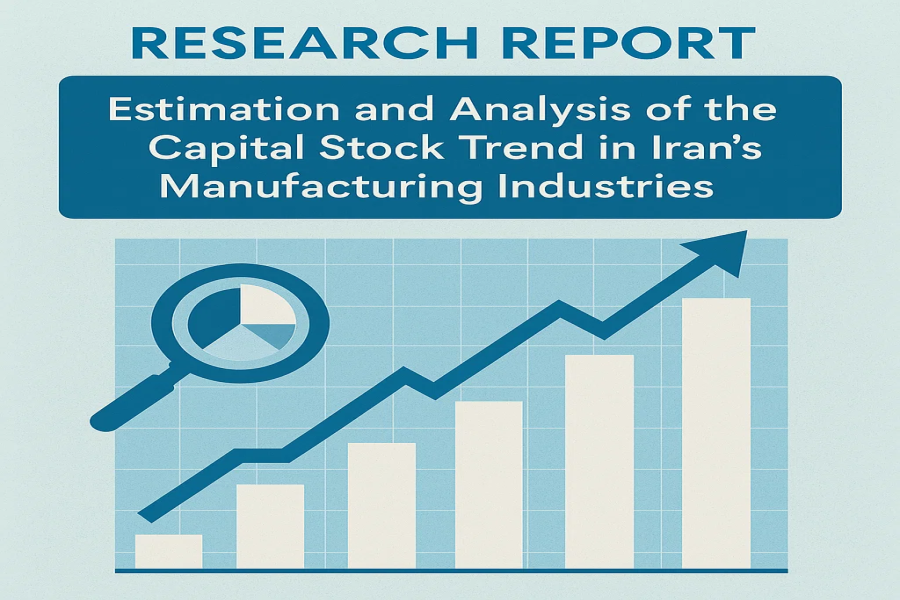
Research report on Estimation and Analysis of the Capital Stock Trend in Iran’s Manufacturing Industries
According to the Public Relations Office of the Center, the Research Group on Modern Systems of Planning, Budgeting, and Modeling at the Center for Development Studies and Foresight has published the research report titled: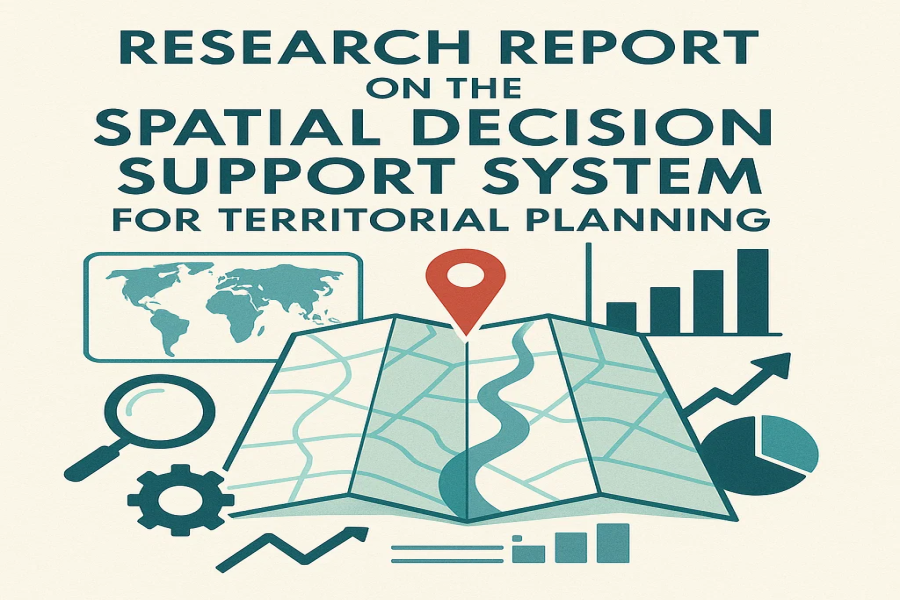
Research report on the Spatial Decision Support System for Territorial Planning
The Research Group on Land Use Planning, Regional Development, and Balance at the Center for Development Studies and Foresight has published its latest research report titled: "Spatial Decision Support System for Territorial Planning." The executive summary of the report states: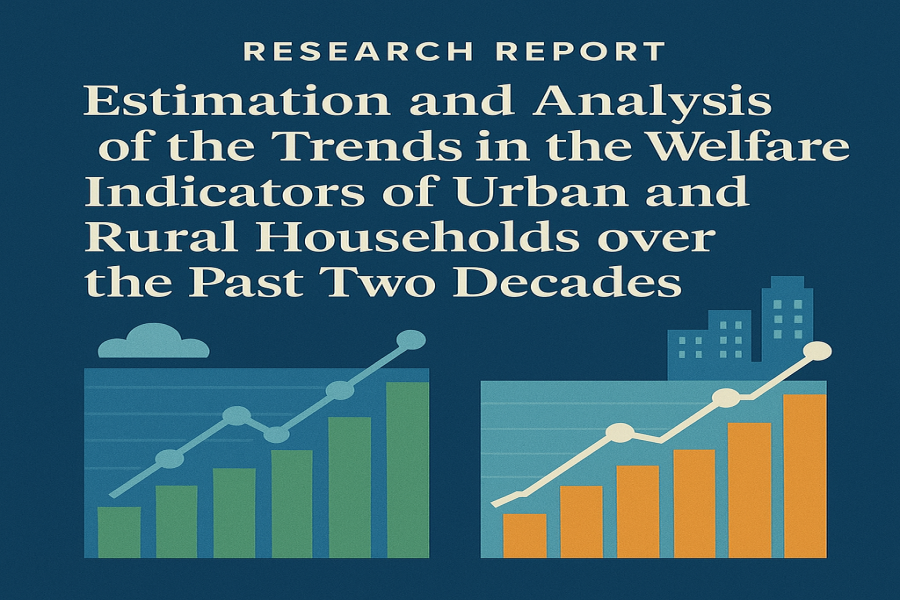
Research report on the Estimation and Analysis of the Trends in the Welfare Indicators of Urban and Rural Households over the Past Two Decades
According to the Public Relations Office of the Center, the Research Group on Modern Systems of Planning, Budgeting, and Modeling has published its latest research report titled: Estimation and Analysis of the Trends in the Welfare Indicators of Urban and Rural Households over the Past Two Decades. The executive summary of the report notes: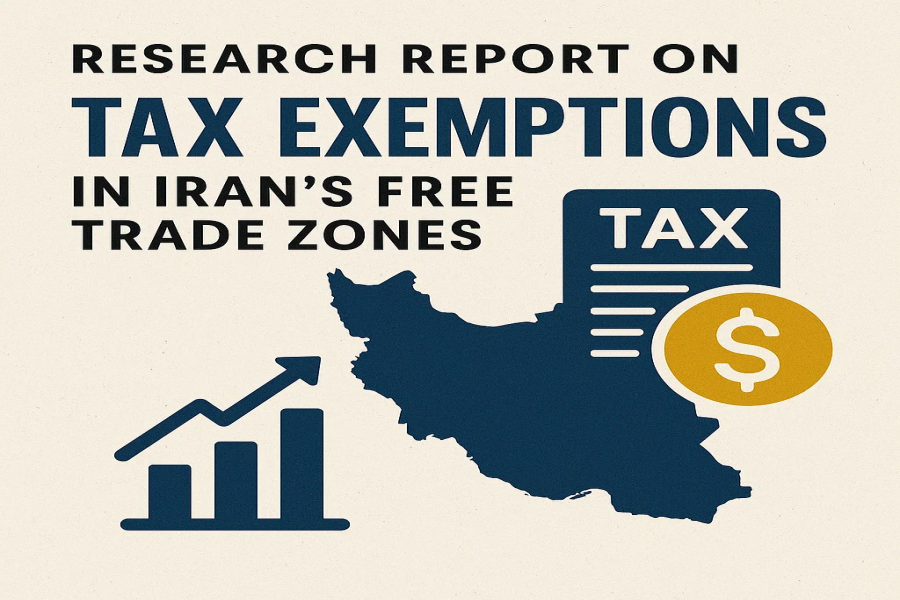
Research Report on Tax Exemptions in Iran’s Free Trade Zones
According to the Center’s Public Relations Office, the research report “Tax Exemptions in Iran’s Free Trade Zones” has been published by the Research Group for New Systems of Planning, Budgeting, and Modeling at the Center for Development and Foresight Research. A section of the executive summary of this report states: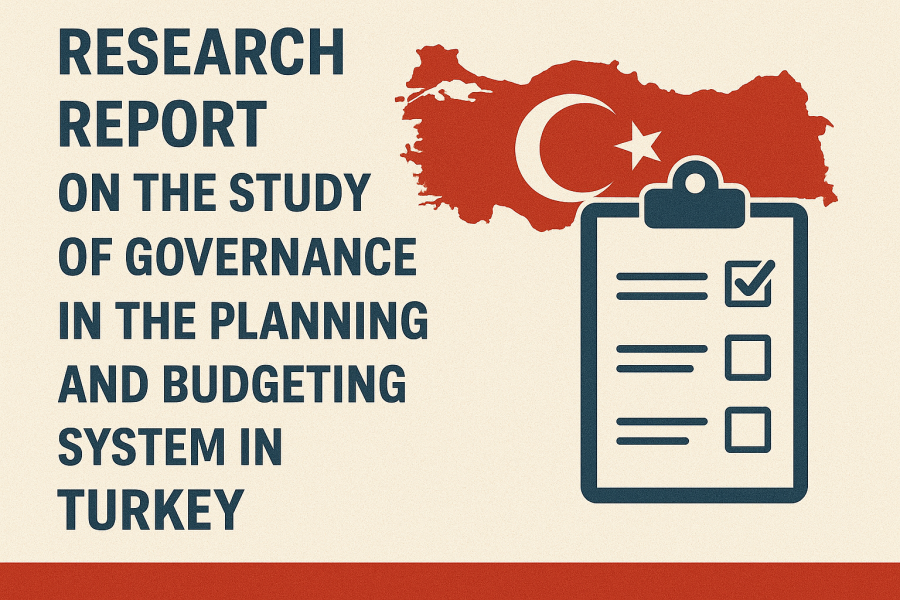
Research report on the Study of Governance in the Planning and Budgeting System in Turkey
According to the Public Relations of the Center for Development and Foresight Research, the Research Group on Modern Systems of Planning, Budgeting, and Modeling published a research report titled "Study of Governance in the Planning and Budgeting System in Turkey" in November 2024.
The 201st Expert Scientific Meeting of the Center for Development Research and Foresight (CDRF) was held.
According to the Public Relations Office of the CDRF, the eleventh session of the series entitled “The Future Outlook of Iran” and the 201st meeting of the CDRF was held under the title “A Critical Assessment of the Vision of the Islamic Republic of Iran in the Horizon of 1404 AH.”.png)
The 198th Expert Scientific Meeting of the Center for Development Research and Foresight (CDRF) was held.
According to the Public Relations Office of the CDRF, the eighth session of the “Future Vision of the Islamic Republic of Iran” series and the 198th meeting of the CDRF was held under the title “Oil in Iran’s Vision.” In this meeting, Ali Agha-Mohammadi, Head of the Economic Group of the Office of the Supreme Leader and non-ex officio member of the Expediency Discernment Council of the System, served as the scientific chair of the meeting. Additionally, Asghar Ebrahimi Asl, former Deputy Minister of Oil during the ninth, tenth, and eleventh administrations, and Mohammad Reza Akbari, faculty member at the Petroleum Faculty of Amirkabir University of Technology and Head of the Governance Working Group for General Energy Policies of the Expediency Discernment Council of the System, participated as keynote speakers, presenting their viewpoints.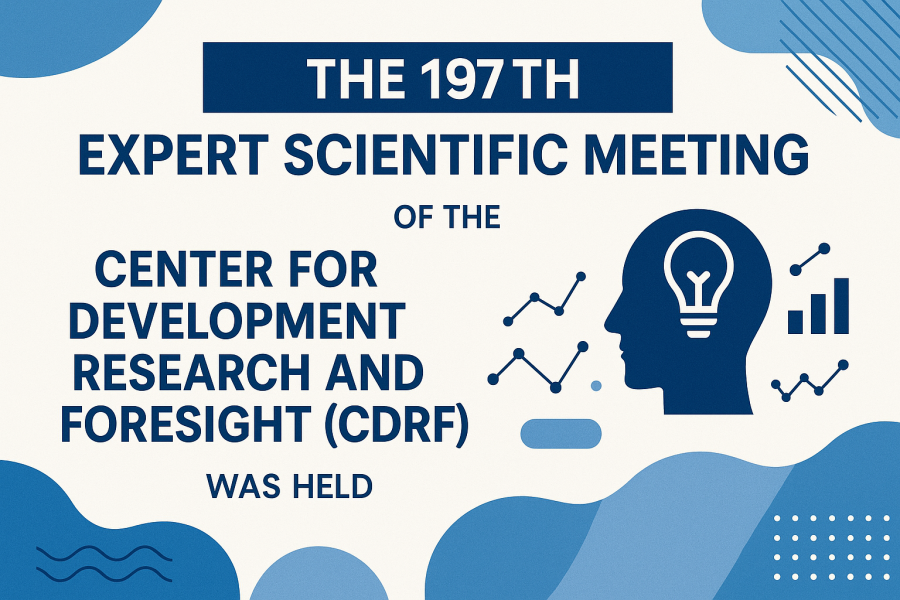
The 197th Expert Scientific Meeting of the Center for Development Research and Foresight (CDRF) was held.
According to the Public Relations Office of the CDRF, the seventh session in the series of meetings titled “The Future Vision of the Islamic Republic of Iran” and the 197th meeting of the CDRF was held under the title “The Role of Technology Development in Iran's Civil Vision.”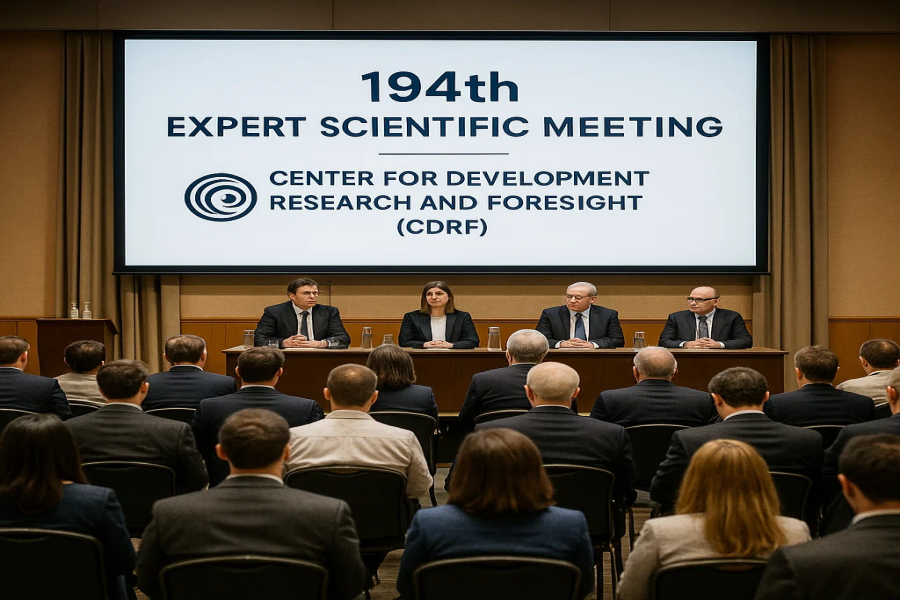
The 194th Expert Scientific Meeting of the Center for Development Research and Foresight (CDRF) was held.
According to the Public Relations Office of the CDRF, the fifth session of the “Future Vision of the Islamic Republic of Iran” series and the 194th expert scientific meeting of the CDRF was held under the title “The Vision of Demographic Changes and Urban Society.”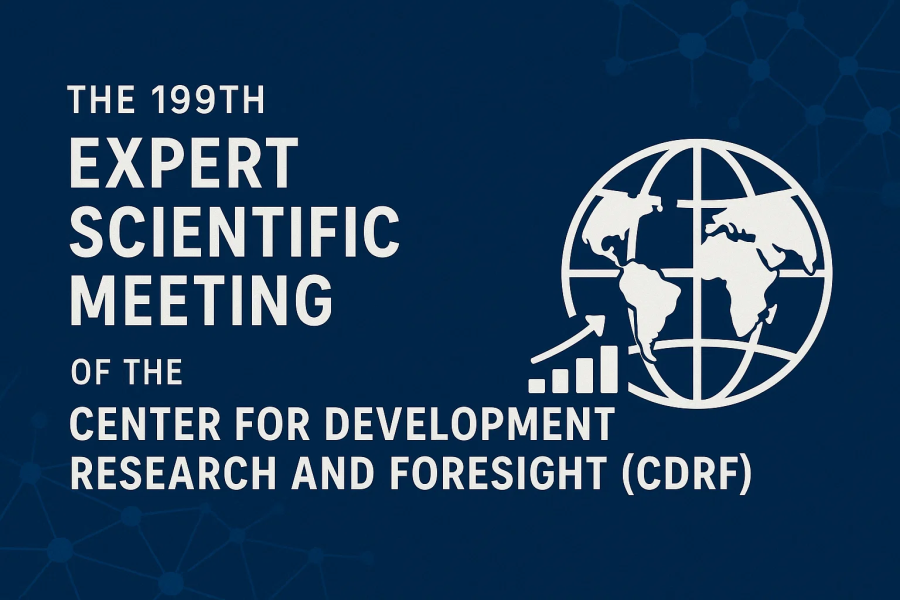
The 199th Expert Scientific Meeting of the Center for Development Research and Foresight (CDRF) was held.
According to the Public Relations Office of the CDRF, the ninth session of the series entitled “The Future Outlook of Iran” and the 199th expert scientific meeting of the CDRF was held under the title “Agriculture in the Vision of the Islamic Republic of Iran.”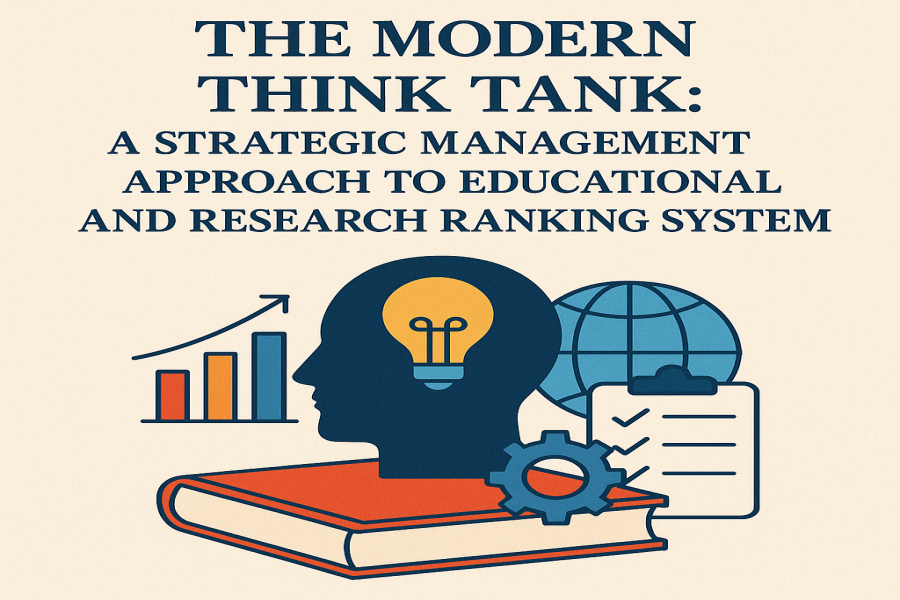
An analytical research report titled “The Modern Think Tank: A Strategic Management Approach to Educational and Research Ranking Systems” was published.
According to the Public Relations Office of the Center for Development Research and Foresight (CDRF), the Office of Research Services has published an analytical research report entitled “The Modern Think Tank: A Strategic Management Approach to Educational and Research Ranking Systems.” Parts of the executive summary of the report states: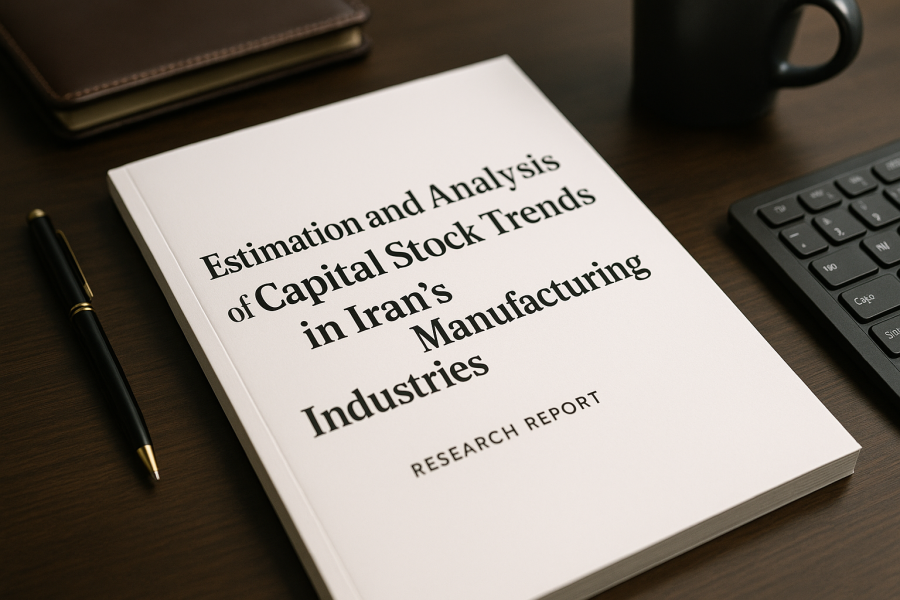
The research report titled “Estimation and Analysis of Capital Stock Trends in Iran’s Manufacturing Industries” was published.
According to the Public Relations Office of the Center for Development Research and Foresight (CDRF), the Research Group on Modern Planning, Budgeting, and Modeling Systems of the CDRF has published a research report entitled “Estimation and Analysis of Capital Stock Trends in Iran’s Manufacturing Industries.” A part of the introduction to this research report states: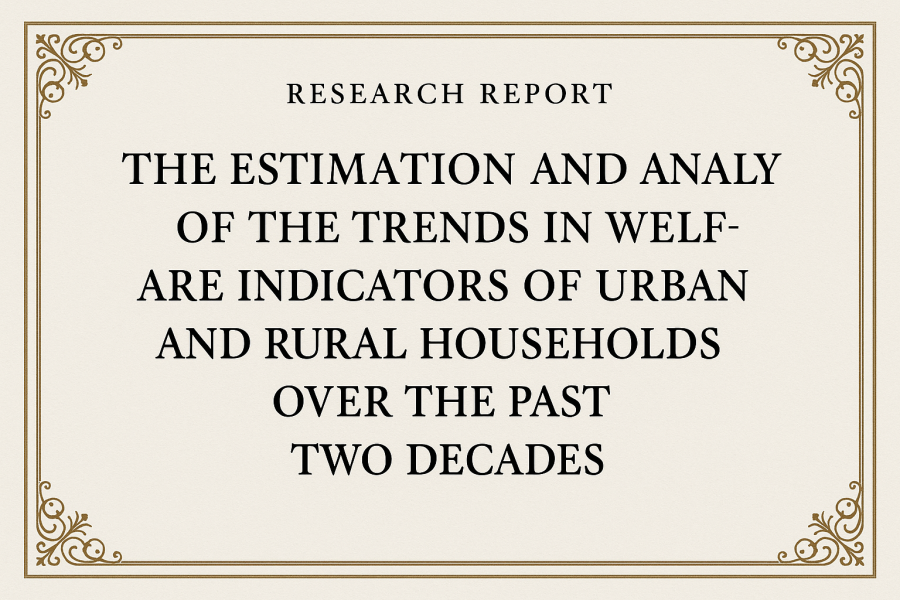
The research report titled “The Estimation and Analysis of the Trends in Welfare Indicators of Urban and Rural Households Over the Past Two Decades” was published.
According to the Public Relations Office of the Center for Development Research and Foresight (CGRF), the Research Group on Modern Planning, Budgeting, and Modeling Systems has published its latest research report entitled “The Estimation and Analysis of the Trends in Welfare Indicators of Urban and Rural Households Over the Past Two Decades.” A part of the executive summary of this research report states: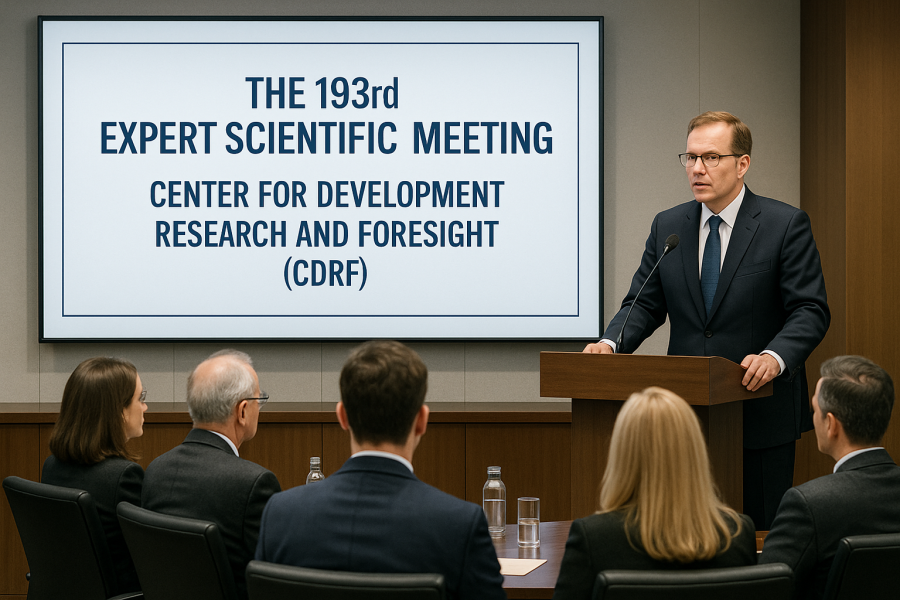
The 193rd Expert Scientific Meeting of the Center for Development Research and Foresight (CDRF) was held.
According to the Public Relations Office of the CDRF, the fourth session of the “Future Vision of the Islamic Republic of Iran” series and the 193rd expert scientific meeting of the CDRF was held under the title “Foresight Methodologies for Formulating the National Vision of the Islamic Republic of Iran”.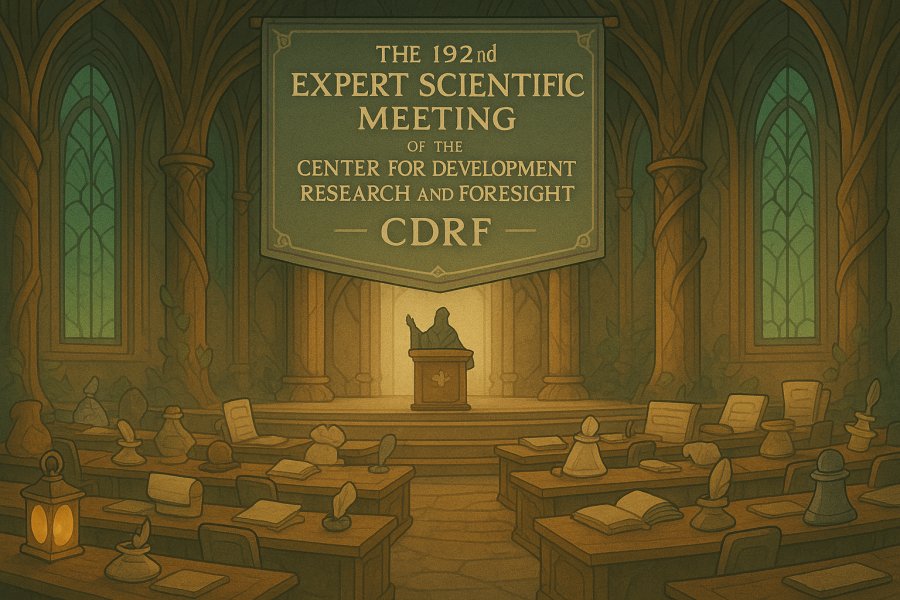
The 192nd Expert Scientific Meeting of the Center for Development Research and Foresight (CDRF) was held.
According to the Public Relations Office of the CDRF, the 192nd Expert Scientific Meeting of the CDRF was held under the title "Wildfires in the Zagros Forests: Challenges and Policy Recommendations." In this meeting, Farrokh Masjedi, Special Representative of the Head of the Plan and Budget Organization of the Islamic Republic of Iran (PBO) for the Preservation and Restoration of the Zagros Forests, served as the scientific chair of the meeting. Additionally, Mehrdad Akbarian, Representative of the Natural Resources and Watershed Management Organization, and Reza Siah Mansour, a faculty member at the Agricultural and Natural Resources Research and Education Center of Lorestan Province, participated as keynote speakers, presenting their viewpoints.
امروز : سه شنبه، ۲۸ بهمن ۱۴۰۴

